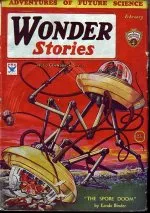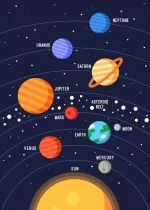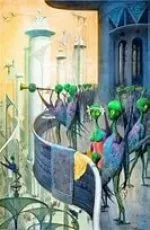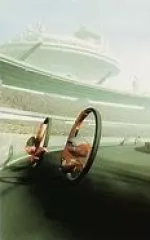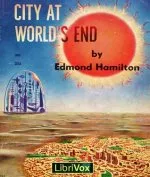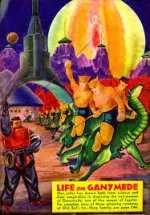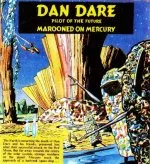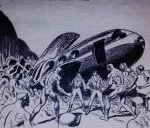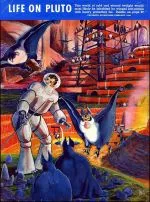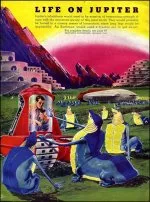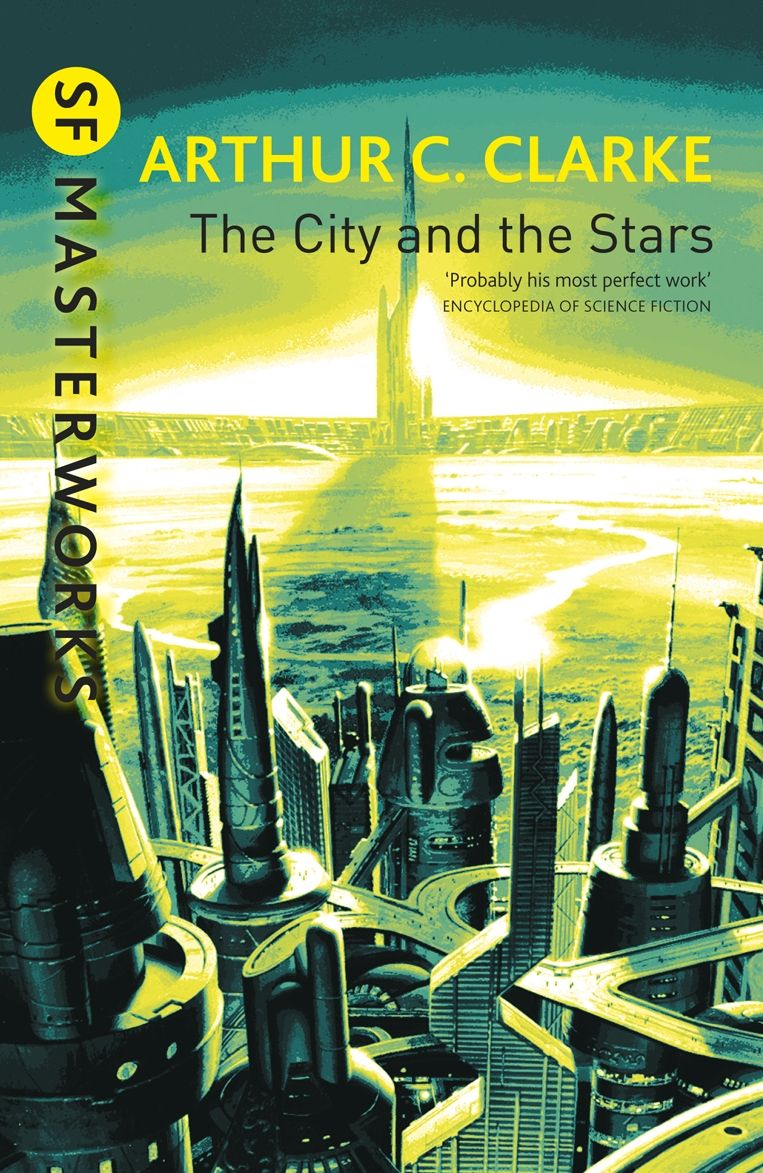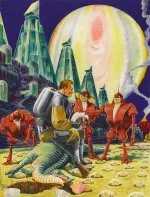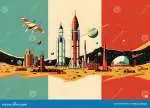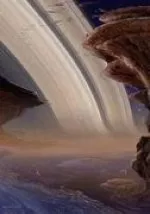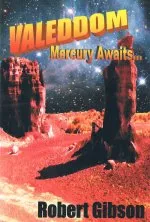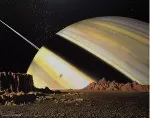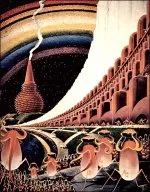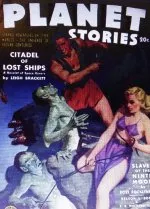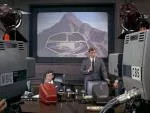the sunport vista:
zendexor's
oss
diary
2018
2018 December 24th:
CLANSMAN RECRUITED - AND OTHER PLEASANT THOUGHTS
My learned brother-with-a-Spanish-Christian-name, Antolin Gibson, at last seems to be on track to release some of his vast portfolio of literary explorations. It was a case of persuading him to focus a fraction of his mighty brain onto the mundane task of learning how to send email attachments... and success is now in sight, as I realized today when I received The Worlds of Edgar Rice Burroughs. (Some time ago he also contributed Out of the Silent Planet: An Overview, but only because I was on a visit and could press the buttons myself.)
So there's a pleasant Christmas gift for the site. I have also received another welcome email, one from Xiangjun Zeng containing episode 2 of Sleeping Fury, which will appear in the January Tales To Astound. I have had encouraging words with Troy Jones, who may have something to contribute at some stage; it appears he doesn't churn stuff out very fast, but let's hope we'll eventually be seeing something from him to match his The Headless Skeletons of Mercury in Vintage Worlds. Dylan Jeninga, David England and Jamie Ross can be relied on to augment the NOSS. Joe Guzzo, last time I heard, has gone interstellar, but who knows, he may return to the System. I hope again to hear from Violet Bertelsen. (As for me, I've got episode 9 of Uranian Throne "in the bag" for the January TTA and am brooding and doodling episode 10.) Our little elite band is growing and consolidating. 2019 should bring great things.
Meanwhile, a very merry Christmas to all readers of Solar System Heritage!
2018 December 20th:
VW SUBMISSIONS - INTERPRETING THE FIFTIES RULE
Dylan Jeninga raised a vital issue in connection with what I'll term the "Fifties Rule" - that stories for the anthology should be of a sort which would have been acceptable to editors up to the end of the Fifties.
His question was, Does that rule out references to later astronomical discoveries?
Answer: Most certainly it does not. Allow me to reassure you all on this point: the Fifties Rule allows those forms of anachronistic precognition which would have delighted the editors of the time. If someone during the Golden Age of OSS fiction had invented a "Kuiper Belt" or "Olympus Mons", for example, I'm sure editors would have lapped up that kind of stuff.
2018 December 19th:
VINTAGE WORLDS 2: DEADLINE FOR SUBMISSIONS
Following on from John Greer's announcement in the Ecosophia blog today, I'm proclaiming the news that the deadline for submissions for VW2 is -
30th July 2019
More on this topic on the Anthology Project page.
2018 December 17th:
INTERNET DOWN IN FAIRFIELD ROAD, HEYSHAM, EARTH
Note to readers: this is being written in a cafe with WiFi. Some engineer must have accidentally cut a cable near my house. TalkTalk say they'll fix the problem "within 3 working days". Meanwhile don't be astonished if I'm slow to reply to emails!
[note added 18 Dec: back on line now. Problem over. Sigh of relief wafts across the System.]
2018 December 8th:
VINTAGE WORLDS 2
John Michael Greer, editor-in-chief of VW1, is allowing me to publish the following exchange:
John Michael Greer to Zendexor, 5 December 2018:
Kaor Zendexor!
With all
the confusion surrounding the Brexit endgame over on your side
of the pond, I figure it's time for some good news. I'm sure you know by
now that Vintage Worlds has achieved
liftoff - I'm still waiting for
initial reviews but I know they're going to be good - and I've managed
to get myself more or less excavated from the landslide of stuff-to-do
that landed on me when Aeon Books snapped up all my out of print occult books
and three volumes of previously published short pieces.
I'd like to post the call for submissions for Vintage Worlds 2 two
weeks from now. As I recall - and please correct me if I'm wrong -
we're planning on the same requirements as before, but with an expressed preference
for good old-fashioned politically and socially irrelevant space opera. Does
that still seem good to you?
This should be fun. I wonder if it's worth penning an alternative Brexit
tale in which Britain's departure from Europe is accomplished by means
along the lines of James Blish's Cities
in Flight...
With my best as always,
JMG
Zendexor to JMG, 5 December 2018
Kaor John!
News to lift the heart, indeed. More than the Cities In Flight scenario, the progress required by Brexit consists of the kind of species-advance described in Poul Anderson's Brain Wave or Olaf Stapledon's Last And First Men, so I particularly welcome the tidings that you'll soon be announcing a project for which fatalistic philosophy, moral renewal and mental development are not such urgent requirements.
I like the emphasis you place on freedom from relevance. Here's a further suggestion: how about saying, as an over-arching general guideline, that we would gladly publish any good story which would have been accepted in the magazines up to and including the Fifties? Come to think of it, that stipulation might require some writers to undergo moral renewal and mental development after all... but anyhow it's a way of cutting out jarring PC notes without being tactless about it. What do you reckon?
Lastly, would you mind if I were to publish this email correspondence on the SSH website? The readers would be interested and it might stimulate more of them to get involved.
Best wishes,
Zendexor
JMG to Zendexor, 8 December 2018
Kaor
Zendexor!
I wonder if you can get one of those hyperintelligent chimpanzees from
Brain Wave to take over the Brexit process. For that matter, at least
from this side of the pond, it looks as though an ordinarily intelligent
chimp would probably do a better job of it than the current crew. I hope
it works out anyway!
I like the idea of saying explicitly that we're looking for delayed
submissions to the pulp magazines up to and including the Fifties.
Science fiction has suffered too long under the leaden burden of taking
itself too seriously.
You may certainly publish this correspondence -- Dylan J. among others
will want to know that our rocket ship is taking on fuel for another
solar system-spanning voyage.
With my best as always,
JMG
Zendexor to JMG, 8th December 2018:
Thanks JMG for your good wishes re Brexit. Things will work out eventually in that the genie of Brexit can't be put back in the bottle. However, years of good old British blundering will have to be endured first.
The following analogy is imperfect, in that I'm no fan of the hereditary principle, but we Brits get comparatively smaller and smaller in a manner reminiscent of chinless aristocrats who, reproved by the memory of their ancestors, eventually sell up and stop trying. The root of the problem is the increasing mismatch between present human resources and the accumulated heritage of past achievements - a dilemma which is apt to arise in any long-lived culture.
Z.
So there you are - we live in unusually interesting times, in many more ways than one.
I shall be posting a proper call for submissions on the Anthology page quite soon. Meanwhile you can all proceed with production of your latest literary masterpieces in the happy expectation that there'll be a demand for them.
Note to the more prolific authors among you: in those cases where I already have displayed more than one of your works on site, I might need to postpone a decision on which one to include. This is because I want to repeat the pan-Systemic spread which we achieved so successfully with VW1. For example, if you have a Vulcanian tale and a Lunarian tale to offer, and nobody else has written a Vulcan tale while several have written a Moon tale, your Vulcan tale goes in. Or vice versa.
Such considerations might be over-ridden in some circumstances; e.g. I might clash with an author who possesses a will of iron. We'll have to see.
2018 December 6th:
APOLOGY TO READERS RE FAILED LINKS
My web-hosters have sent me a report detailing 57 failed links on the site. I've just dealt with one of them, bringing the total down to 56. Fairly soon I shall reduce it further. However, there are some items I do not understand, and which may have to remain, due to my lack of technical knowledge.
Furthermore, a majority of the dud links - 37 of them - will probably have to remain even though, in their case, I do understand what's going on. Those 37 are the links within the page Uranian Eras. At the time when I copied that page from my other site, www.ooranye.com, I failed to realize what a more savvy webmaster would have known - that its links wouldn't automatically be transferred merely by my having lifted the coding into a box on this site.
So, if you wish to use Uranian Eras for more than just a quick summary of the time-line - that's to say, if you wish to zoom from it into more detailed explorations of the various eras of the Seventh Planet - I suggest that, rather than use the page on this site, you go to www.ooranye.com, click on "History" and then on "Table of Eras, Dates and Events".
2018 December 1st:
SITE-STATS FOR NOVEMBER - AND WHO YOU ALL ARE
The month just over saw 3,574 individual users of the site (the third-best total on record), making 14,063 visits (second-best total), resulting in 29,511 page views (the best total ever).
I can't resist making some comment on the national origins of my readers.
12 per cent of the November visits were from France, whereas 1 per cent were from the UK. This confirms me in my high opinion of the French. They're a cultured and discerning lot, over there. I wish I could say the same for my fellow-countrymen in general, though of course this stricture doesn't apply to the elite 1% of visitors to Solar System Heritage who hail from my homeland.
Incidentally, 4% of visits were from Canada, and it would be interesting to know - in view of the above-mentioned French connection - how many of these visitors were from Quebec.
62% were from the USA, which is about normal. Other figures above 1%: from China came 5%, from the Republic of Korea, Israel and India came 2% each.
If you're from a country which I haven't mentioned here, you may regard yourself all the more in the vanguard of your compatriots' cosmic consciousness.
2018 November 27th:
RECENT READING AND 1953
Having run out of van Vogts to re-read, I came to an end of that phase, and turned to browse some old favourites in The Best of C M Kornbluth, edited by Frederick Pohl. Not much OSS there, except for the notable invasion tale, The Silly Season, which had a lot more in it than I remembered from my first read of it some decades ago. In particular I'd forgotten the telling detail, that in some ways a blind man can less easily be fooled by illusion, than one who is sighted.
Next, I took some time off the sf genre and turned to Ruth Rendell's crime novels. I re-read The Bridesmaid and for the first time (and probably the last) read the even more disturbing novel about the disastrous consequences of generosity, The Lake of Darkness.
Taking flight from all that, I returned to sf and am now re-reading, for the gazillionth time, John Wyndham's The Kraken Wakes (1953). It would be absolutely ridiculous for any sf fan to die without first having encountered this fantastically compelling work, in which the Earth is invaded, and our oceanic deeps colonized, by beings who live at high pressure, presumably having evolved on a gas-giant planet, probably Jupiter. The build-up of the invasion is spellbinding, the detail masterly, and the sense of menace very convincing - as it becomes ever clearer, that there's no question of each species merely keeping to its own favourite environment. Environments can be altered... expanded...
Having read it so many times, I now spend more attention on the minutiae. This time I noticed, for instance, an interesting detail about the register of vocabulary in the year 1953. The point can be gleaned from the following passage, in which the feasibility of "bombing the bathies" is discussed. I've put the key phrase in bold:
..."The fisheries experts on both sides of the Atlantic have been raising hell, and saying that it's because of the bombings that some shoals have been failing to turn up in the proper places at the proper times. They've been blaming the bombs for upsetting the ecology, whatever that is, and affecting the migratory habits..."
Good bit of material, that, for a historian of popular consciousness. Or unconsciousness.
2018 November 12th:
ATTITUDE-FUN
I've just finished re-reading - after a gap of many years' - van Vogt's The World of Null-A. To my pleasant surprise, I thoroughly enjoyed it. This happy outcome was partly due to the fact that I did not expect to follow the plot rationally. I simply accepted the story as a kind of phantasmagoria of colourful incidents. That attitude of don't-expect-too-much was one of the two pre-requisites of enjoying it more this time than previously.
The other pre-requisite, I reckon, was being interestingly aged. I was able to make comparison with distantly past experience. Consequently, I was experimenting with the re-awakening of memories of previous readings, and especially of the first reading, decades ago. It was like pressing little buttons to compare one sensation with its antique counterpart of long ago. A poignantly interesting exercise! No question about it, advantages exist in being old.
In the end, it's no bad thing to have read Damon Knight's destructive criticism of van Vogt, valid in its way - provided that one goes beyond it. To the veteran sf reader, The World of Null-A can become an eccentric friend, far from perfect, yet with its own odd merit. I hope that doesn't sound patronising. Van Vogt at his best was a great writer - though greatest in shorter pieces, rather than in novels.
2018 November 9th:
THREE STRIKES AND YOU'RE IN
On a quest for those overlaps in ideas which shimmer into form the characters of worlds, I shall adapt the saying from Fleming's Goldfinger, 'Once is happenstance. Twice is coincidence. Three times is enemy action'. My adaptation will be positive - thus in the following example -
It must be a grand time on the steppes of Uranus! ...the animals there are all burrowers... the first time I saw the dry-bog serpent come wallowing out... (From Lilith by George MacDonald.)
That once is a nice idea.
I know
What clammy blossoms, blanched and cavern-grown,
Are proffered to their gods in Uranus
By mole-eyed peoples... (From Clark Ashton Smith's The Hashish Eater.)
Those two form an intriguing overlap. Burrowers - moles.
And then we have the blind chain-creatures in Weinbaum's The Planet of Doubt.
Three converging pictures - blind things - burrowers - moles - convince as a gestalt!
Once is happenstance. Two is coincidence. Three is a powerful group-mind at work!
2018 November 6th:
APPRECIATING LOVECRAFT'S ENGLISH
Some while back I mentioned that as I get older I get more appreciative of writers' achievements, which previously I took for granted. Here's an example of the process:
Ever since that time in my twenties when I encountered The Shadow Over Innsmouth, At the Mountains of Madness and The Shadow Out of Time, I've been bowled over by HPL's imagination and vision and the sparks of genius that come out in a few exceptional phrases. But now I realize the writing is of a more frequently higher standard than I gave it credit for.
It hit me recently while I was re-reading The Whisperer in Darkness. I'll quote a passage consisting of two sentences. The first is up to par - as good as it needs to be - but the second, in my opinion, is super-efficient, though still low-key. I'll highlight it, as the one which jogged my awareness:
...Most people simply knew that certain hilly regions were considered as highly unhealthy, unprofitable, and generally unlucky to live in, and that the farther one kept from them the better off one usually was. In time the ruts of custom and economic interest became so deeply cut in approved places that there was no longer any reason for going outside them, and the haunted hills were left deserted by accident rather than by design.
Neat, unobtrusive mastery!
2018 November 5th:
NASA PROJECT DESIGNERS PLEASE NOTE - SOME HARD POETIC DATA ON SATURN AND URANUS
I've just come across the following lines in Clark Ashton Smith's The Hashish Eater (1922):
I know
What clammy blossoms, blanched and cavern-grown,
Are proffered to their gods in Uranus
By mole-eyed peoples; and the livid seed
Of some black fruit a king in Saturn ate,
Which, cast upon his tinkling palace-floor,
Took root between the burnished flags, and now
Hath mounted and become a hellish tree,
Whose lithe and hairy branches, lined with mouths,
Net like a hundred ropes his lurching throne,
And strain at starting pillars.
2018 November 1st:
OCTOBER VIEWING TOTALS
I can joyfully announce that the record of 24,158 page views set last March has now been smashed by the figure for October, which totalled 27,623.
The total of visits also amounted to a record, namely 15,503. (September's figure, a record at that time, was 13,492.)
Only the total of individual users failed to beat all previous months: in October there were 4,070, which fails to beat September's 4,329, but vastly surpasses all previous months, whose user-totals never reached 2,500.
So it looks like we're in a new age of site-use, which suggests the Old Solar System is inserting itself into our continuum, rather like the creeping other-dimensional seepage in Ubik...
2018 October 31st:
JASOOMIAN JEDDAK
Being a history buff I am very much in to anniversaries, but there's one which I oddly missed until now. 2018 is the 900th anniversary of the death of a great Emperor, one who strikes me as a promising candidate for inclusion in any attempt to realize in Earthly terms the Barsoomian theme of an honourable and heroic ruler.
Mind you, I am no expert on the life and reign of Alexius Comnenus (r. 1081-1118), Emperor of Byzantium. If I knew more I might be put off, because doubtless the chap must have had his ruthless side, as was inevitable given the circumstances. So, in a way, I'm happy for the time being not to know more. Some day I may read his daughter's memoir, the "Alexiad" of Anna Comnena, a eulogy of the achievements of her father, and inevitably a vital source for knowledge of the period. But this much I do know: Alexis saved the Empire in its extremity after the disaster of Manzikert (1071), and by the time of his death had sufficiently restored it, as to give it an extra century of life before the lethal blow dealt by the treacherous Fourth Crusade (1204). It's quite something, is it not, to have staved off the collapse of an empire for an entire century?
Barsoomian jeddaks tend to be either very good or very bad. Jasoomian jeddaks often make good villains, but otherwise tend to be mediocre or yuck. But occasionally one finds one who makes the grade. I feel I can look up to Alexius.
2018 October 30th:
ENFORCING PLOTFORMITY
"Plotformity"? I don't know what else to call it. When the plot demands that a character gets somewhere and/or does something, and so the author jolly well makes sure, by hook or by crook, that it happens. And if there's no way to make it happen, he makes it happen anyway. Because it's got to. Because that's the way it has to be.
In my current van Vogt re-reading phase I'm noticing things I never noticed before. One of them is the outrageous plotformity enforced on pages 72-74 of my edition of Slan. Jommy Cross has simply got to get into a spaceship about to leave its hangar which is inside a huge mysterious building. He must perform that feat, even though he doesn't know the layout of the building and the ship is about to take off within minutes. The shape of the book depends on his getting through...
Very fortunately, he finds a chute to slide down... then an open door in the shapeship... and as it happens, it later transpires that the enemy let him in deliberately; but he wasn't to know that. (I'm actually understating the obstacles in Jommy's path - as you'll see if you examine the text.)
I suspect that if I did a survey of plotformity I'd find that van Vogt has more recourse to it than most authors, and, moreover, that he does it successfully. You can only get away with that sort of thing if you have myth on your side. A visionary author, creating myths, will blind the reader's critical senses - as van Vogt blinded mine during all my earlier readings of Slan.
Having got through Slan, I wanted further doses of van Vogt. I'm now re-reading The Book of Ptath. It strikes me as one of the best-written of his novels. The first chapter is particularly masterly in its sense of wonder mingled with dramatic irony, as it depicts a bewildered god-man returning to consciousness on a far-future Earth.
But first I tackled Quest for the Future and, for the first time, managed to get to the end. It's one of his annoying fix-ups, jamming earlier stories artificially together - fine tales which are far better left unattached. I persevered because I kept wondering if it was ever going to start making sense.
I'd call it plotformity gone mad, except that I doubt if there was a comprehensible plot to which to conform. Still, if anyone can put me right on this, I'm all ears.
2018 October 26th:
COULD TRY HARDER
This week has been an enjoyable half-term holiday for me. My main source of income, one-to-one tuition, is quite stressful and draining, since I give my pupils (bless them) my absolute all, because, during their hours of wisdom-absorption, for which they pay me £24 an hour (I'm thinking of putting the rate up, actually), I have to be in a state of correspondingly heightened wisdom-emission. But not this week. Yippee! Free to flop!
On Tuesday I went with my wife on the train to her birth-city of Preston for a day out. Nothing spectacular, just a pleasantly ordinary mooch. Often on such trips we go to WHSmith just before lunch and buy a magazine or two, and look at it together over lunch. This time I bought the current issue of Astronomy Now. We looked at a picture taken by the Curiosity rover of a view looking from a ridge on Gale Crater, Mars. We also looked at an article about Mercury, timed to coincide with the launch of the latest Mercury probe, BepiColombo.
All this reminds me of ways in which I am getting both worse and better as I get older. Worse, because I get crotchety about the loss of heritage; better, because I find things to appreciate in life which I never thought much about when young. Not that any of these thoughts escaped my lips during my outing. For example, I kept quiet about the negative report I felt like writing about the Solar System, after looking at those Mars and Mercury pictures and articles in Astronomy Now.
They are good stuff, of course. Well presented and interesting, in their way. Even beautiful, you might say; the Curiosity rover's image is magnificent.
But I don't have the excuse-manufacturing stamina which I used to have. I remember in 1979 looking at the Voyager images of the Galilean satellites and thinking, Wow! Here I am actually seeing these worlds at last, for real! So wonderful was this actuality, that the fact they were obviously lifeless hardly seemed to matter. After all, I expected no evidence of life out there - I did know that much science. And back in 1976 with the Viking Mars landers it was the same - I churned out excuses and looking-on-the-bright-side reflections at a constant rate. Somehow, the old sf sense of wonder survived as a kind of adhesive transfer or transparent overlay to donate its numinous glow to the actual, probe-examined scene, no matter how inappropriately, no matter how far the sf feeling had to be fetched to be pasted onto the inadequate reality - I somehow managed to do it!
Now, however, in my sixties, I no longer have the tolerance and patience which I had in my twenties. Now, I feel like writing in the Real Solar System's end-of-term report, "This pitiful reality simply isn't good enough. Your Mercury lacks a Twilight Belt; your Mars is an absolute disgrace, not even mossy or lichenous. Your Moon is not too bad, though you could have made the mountain peaks a bit sharper, and your Pluto looks pretty good, compared with your usual crater-saturated efforts (e.g. Callisto, Ceres, Dione)... but it's hard to find any other positive comments to make. Your trouble is that by and large you haven't been reading the right books. More effort will be required next term."
Note: for some interestingly hopeful comment on the above, see the end part of Dylan Jeninga's latest travelogue.
2018 October 18th:
DISTENDING WORLDS
It would be interesting to write about the continued physical accretion of the planets, as they go on sweeping up cosmic dust and stuff, but I'll leave that for another time. Here, instead, are some thoughts on metaphorical distensions - i.e. increases in scope.
By this I don't just mean discoveries. The frontier-adventure tale, where you expect to be surprised, is inherently open-ended. But it's a different kind of thrill when what we thought was closed-ended becomes open. That's to say, sometimes we think we have run out of scope and then the range suddenly enlarges.
The past few days I've been re-reading J T McIntosh's disaster story One in Three Hundred (1956) and the great horror tale by H P Lovecraft, The Shadow Over Innsmouth (1931). These two yarns are as far apart in mood, subject and style as one could imagine. But each of them "stretches" a world.
One In Three Hundred gives us a protracted solar flare which scorches the Earth but, at the same time, renders Mars warmly habitable. It therefore stretches our notion of Mars - to allow that the Red Planet can be warm.
The Shadow Over Innsmouth allows Earth to contain more than we thought it did, with regard to intelligent species and civilizations - because we're shown glimpses of a non-human, undersea culture. Our picture of our own world is thus swollen, and our pretensions to world domination are thereby shrunken.
There's so much to say about HPL's story, I could write a book about it if I had the time. I've put it here in the context of world-stretch. I could spout even more extensively about the lessons to be learned from it on how to read! Briefly, you must be prepared to gag the chattery critical faculty the moment it looks like butting in with "Hey, what's wrong with these sea creatures anyway? Why are we supposed to think of them as horrid when they're just different from us in shape?"
Gag that voice - for in this case, it's missing the point.
Sure, rigidly defined enclaves of "identity-politics" can be frowned upon, but the idea of having to
relinquish one's humanity and turn into one of the bulging-eyed Deep
Ones is going too far in the alternative direction of cultural flexibility.
HPL's paranoia is a literary asset. By making our familiar scene seem small and threatened, it increases our respect for the range of cosmic reality. Horror is his tool for mental expansion. Indeed, the kind of emotions roused in the course of his narrative would, if transferred to settings on other planets, help to restore a much-needed aura of immensity to what can sometimes be a rather squashed and crowded, taken-for-granted nine-planet scene.
You must therefore respect and comply with the emotions that are handed out by the author, if you are to get the full benefit of reading The Shadow Over Innsmouth. I mean to say, if HPL says something is horrible, then please co-operate and shudder. It's not hard to get into the right mood; he orchestrates the build-up with un-matched brilliance. Read it in the right spirit, and even if you're not ideally placed (i.e. in a seedy hotel in a sinister run-down crumbling seaport town), you'll end up agreeing that HPL's protagonist had a point when he decided to get out.
(I wonder, by the way, how the fellow
managed to alert the authorities. How did he get them to believe him?
Could it be that Hoover's FBI had had its eye on Innsmouth for some time
and were thus easily prodded into action?)
One
last comment. HPL allows, in the final, master touch, for the horrible
to cease to seem horrible, so that we can argue ever after about
whether this cessation of horror is, in fact, the greatest horror of
all. We're meant to think it is; but if you really can't do without
mixing the tale's mood with extraneous ideals of inter-species tolerance
and cosmic brotherhood, then go ahead and enjoy the permission which
you're given by the plot - permission to cast your emotional vote for
the change to the life of the Deep Ones.
2018 October 14th:
HISTORY AND THE OSS
Whenever this particular day of the year comes round I meditate upon the great disaster suffered by the country I live in on 14th October 1066.
And, as usual, I am tempted to try to relate these thoughts to the Old Solar System.
Admiral Jellicoe at Jutland in 1916 was said to be the man who could have lost the war in an afternoon - but Harold actually did worse than that. 952 years ago today, he lost the country for about 300 years. If you take language as an indicator, the English nation re-surfaced some time in the 14th century... with a language and an administration enriched by all the Norman French influences, as the most annoying type of historian keeps reminding us. But those precious influences could have penetrated peacefully, as they did in Scotland. Absolutely no need for invasion followed by massacre and depopulation, just to achieve cultural development! Phew! The way armchair historians go on! I roll my eyes and wish they themselves would get a taste of what they sound so fond of. Perhaps they will. I often wonder if there's an exchange program of some sort in the hereafter - like in the film of The Twilight Zone.
Anyway, on to the challenge of relating all this to the OSS...
I must dig into my own motivations and ask: why am I such a combined history-and-OSS buff, anyway? Answer: because I crave stories. What's so good about stories? Action? Action by what? Suspense? Suspense about what? Answer: the building blocks of stories are personalities.
Not necessarily the characters of people only. Those of countries and planets are every bit as important. Critics talk of "settings" as though they are mere backdrops, but they are, in fact, protagonists.
Where is this leading me? Perhaps in the direction of a comparison. England was knocked out on 14th October 1066, trampled upon in the succeeding years, yet reinvented herself and survived to re-emerge centuries later as a recognizably native kingdom. Character won.
The literary Old Solar System was blatted by the discoveries of the Space Age. Mariner 4's Mars, Mariner 2's Venus, were lethal shots in the eye for our images of those planets. But their traditional characters had by that time achieved a mental substance of sufficient resilience to stage a comeback a while later. And - here we are.
Once etched upon the space-time record, a personality is hard to kill.
2018 October 11th:
SHADES OF THE H-R DIAGRAM
Here comes one of my far-fetched analogies.
The height of a fictional Mars rocket brought me, via a whimsical chain of thought, to a comparison with the famous Hertzsprung-Russell diagram which plots stellar temperatures against stellar luminosity.
It's what comes of re-reading Eric Frank Russell's Dreadful Sanctuary. From page 17:
...They stopped as they came to the part-built rocket, surveyed it silently. It posed within its surrounding framework, a dull black cylinder eighty feet high. The framework soared another eighty above it, indicative of the total height after the nose got fitted...
That gives one datum: namely, that a tale published in 1948 gave 160 feet as the height of a Mars rocket. You could design a graph to show this kind of information: you could have dates of publication along the x-axis, and height of Mars rocket along the y-axis, and each datum would be a dot somewhere in the graph space. Russell's datum would thus have the co-ordinates (1948, 160). I can't tell you off-hand whether John Wyndham's Stowaway to Mars gives the height of its rocket, but you could plot that if it does. And so on for any others.
If there are enough data - and that's a big "if", I know - you could plot them all and see if, H-R diagram-style, they arrange themselves into a Main Sequence...
And if it doesn't work for Mars rockets it might still work for other themes to do with the OSS and, in particular perhaps, with the Old Space Program.
For instance you could have an Astronautical Optimism chart. That would have dates along both axes, because it would be about fictional dates plotted against dates of publication. The x-axis might show dates of publication of stories to do with the first flight to the Moon or Mars or Venus (or all of them, if you colour-code the dots to distinguish the destinations); the y-axis could show the fictional dates of those flights.
The Mars flight in Dreadful Sanctuary would then have the co-ordinates (1948, 1982). Interestingly, the Moon flights in Clarke's Prelude to Space and in Heinlein's The Man Who Sold The Moon would both have y-values of 1978; I'm unable to remember off-hand the x-values, that's to say the dates of publication.
Who knows what extremely interesting Main Sequence pattern might arise from this! You don't know till you try; just as Eijnar Hertzsprung and Henry Norris Russell didn't know till they tried...
2018 October 8th:
A MARTIAN POET SAVES THE HUMAN RACE
Sometimes, only Eric Frank Russell will do. I'm in an EFR phase at the moment. It's noteworthy - if one looks at the dates of his stories - that in steady progression in1948, 1950 and 1952 he wrote three outstanding novellas which, each in their way, embody the triumph of good over evil.
Late Night Final (1948) concerns the conquest of strutting fascist-style invaders by the quiet wisdom of an elder Earth. I Am Nothing (1952) tracks the awakening conscience of a ruthless dictator whose dormant feelings are awoken by a distressed child. Neither of these superb tales belong to our sub-genre. But the third, Dear Devil (1950), is an Old Solar System story.
It also differs from the other two in the sense that the evil is not extant. That's to say, the abject human race, roused from the numbing effects of disaster by the intervention of the Martian poet Fander, had not been in thrall to any malevolent regime. Earth was not oppressed, merely exhausted and hopeless as it languished amid the after-effects of old hatred, a couple of generations after the final war, when the Martian exploratory vessel arrived and Fander chose to remain to see what he could do.
This absence of goodies-versus-baddies makes Russell's achievement all the more stunning. Dear Devil is not only one of the most moving but also one of the most exciting stories one could ever hope to read. It's a saga of the conquest of loneliness and fear, achieved by means of the growth of community. There are no villains, there are merely opportunities to be seized, and the dangers inherent in failing to seize them. The reader is on the edge of his seat as he follows Fander's struggles and ploys, in the great attempt to rescue a world. (Fander, incidentally, is one of the three great types of benevolent non-humanoid Martian, the other two being Weinbaum's Tweel and Heinlein's sinister but wise tripedals in Red Planet.)
All this goes to show that it is possible - given sufficient genius - to write in such a manner as to make goodness enthralling.
2018 October 5th:
WINNERS IN THE POP-PAGE STAKES
We can now sit back and contemplate the latest intrigues in the Solar System's corridors of power - that's to say, we can, for fun, personify the fluctuations in popularity evinced in the newly updated page-view winners.
The "rising stars" who have managed to change their category colour are as follows:
From blue (3+ views per day average) up to red (4+): Mars.
From green (2+ per day) up to blue: Vulcan, Jupiter, C S Lewis, Titan.
From black (1+ per day) up to green: Martian Landings in the War of the Worlds, Silicon Life, Stretching the OSS, Triton, What to see on Venus, What to see on Mars.
From not being on the list of super-pages at all (less than 1 per day) up to black: Ariel, Eerie Earths, Europa-Dive, Kurt Vonnegut, Moon Quiz - Tale to Author, Pirates of Titan, What to see on Ceres, What to see on the Sun.
There must be stories lurking in these results...
2018 October 1st:
FIGURES FOR SEPTEMBER
You can never tell what's about to happen in this life! In September the number of individual site users soared to 4,329. That is approximately a doubling of the previous range of figures. Never before had it reached 2,400 and for over a year it had been hovering around 2100-2300.
The number of individual visits has surged to 13,492 - compare August, itself a record month for visits, when the figure was 9,744.
The only non-outstanding total is that of page views - 23,275. This is merely the second highest ever.
All in all, I can't very well complain! Except that I can reiterate my frequent grumble, that only 1% of the users come from the UK. 62% from the US, 1% from the UK... that means, either the UK's population is one-sixty-twoth of that of the US (which would mean the British now number about 5,000,000, which should ease the housing shortage) or there's something I'm not getting right, in trying to appeal to my own people...
Anyhow, let me voice a hearty welcome to the new inhabitants of our vivid and inexhaustible dreamland, whatsoever lands you come from. I hope you will contribute your views and, best of all, your stories.
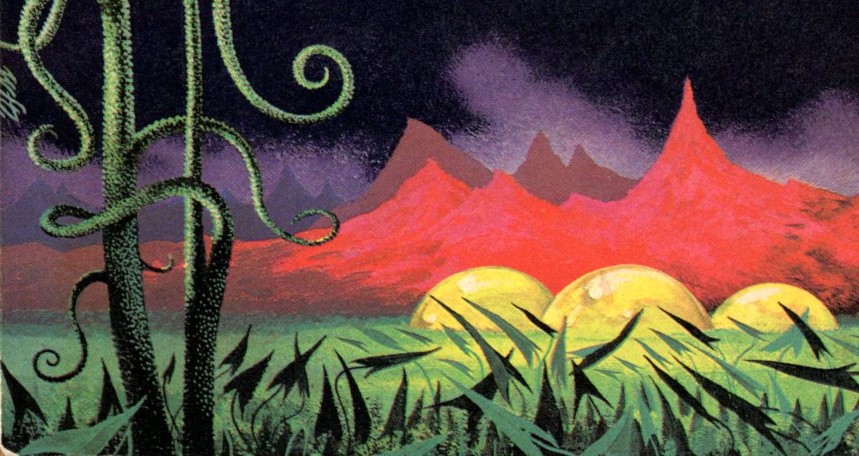
2018 September 27th:
PLAYING DARTS EN ROUTE TO MARS
From The Sands of Mars by Arthur C Clarke:
There are not many games of skill that can be played in space; for a long time cards and chess had been the classical stand-bys, until some ingenious Englishman had decided that a flight of darts would perform very well in the absence of gravity. The distance between thrower and board had been increased to ten metres, but otherwise the game still obeyed the rules that had been formulated over the centuries amid an atmosphere of beer and tobacco smoke in English pubs... (p.30-1.)
The above passage is one of many memorable asides which pepper Clarke's serene novel. The darts game is played aboard the Ares, first ever passenger space-vessel, en route from Earth to Mars.
My paperback edition is the first Pan Books impression, dated 1964 when I was ten. I probably bought and read it within a year or so of its appearance. Now, over half a century later, I like the darts-reference as much as I liked it as a boy, but for starkly different reasons.
As
a space-struck youngster, I was full of pity for the poor Earthbound
folk amid the beer and tobacco-smoke of those pubs; how great, I
thought, to be far from all that and on the way to Mars! Hence the
pub-reference added to the contrast and to the excitement, by means of
what to me was pathos.
But nowadays, while as keen as ever to slip into Clarke's continuum and board the Ares for the Red Planet, I also find that some of the numinous glamour of space and Martian colonisation has rebounded to make those Earthbound pubs glow as well. Not that I'm a great one for quaffing beer, and personally I welcome the absence of cigarette smoke. But as the culture I grew up in sinks, Atlantis-style, ever further into oblivion (I read that pubs are closing down at an average rate of 18 per week), for me The Sands of Mars now also sheds glamour on an additional planet - a lost Earth.
A typical effect of opening any book that conjures up the antique allure of the Old Space Program.
2018 September 21st:
TURNING OVER A NEW LEAF
Congratulations are due to all who have contributed to the Anthology's Kickstarter program, which has now achieved 102% support. The project is now assured! Further influx of support will be of benefit to contributors, in that you thereby guarantee yourselves early copies of the book and make it more likely that further anthologies will appear in the series sooner rather than later, but as far as the existence of Volume 1 is concerned, we're home and dry!
Another big thing happened this morning. The month's total so far of users of the site has topped 3,000. For over a year it had never reached as high as 2,400, hovering in the 2,000-2,300 range. Amazing, stunning...
These two developments have so startled my habitually grumpy, pessimistic self, that they've caused me to re-think my relationship with you the readers, insofar as I reckon it's time to stop being coy about the name on my birth certificate, which, as you will have surmised, is not "Zendexor".
There were two main reasons for "Zendexor". In the first place, my birth-name is extremely boring. It's all very well for those who can sign themselves resonantly as "Dylan T Jeninga" or "Violet Bertelsen", to take just two examples from the contributors to the Anthology and to Tales To Astound. With names like those, you more or less have to be a writer. Another example is "Ernest Hemingway" - he had it made, too. But pity anyone who has to make do with Robert Gibson. So, in emails and such, I'd prefer to continue to be addressed as Zendexor, if you don't mind.
The other reason is one of trust. When I began the site, I didn't want people to think it was mainly an exercise in self-promotion. Sure, I am a writer as well as a critic - it's a likely combination, just as a keen gardener after seeing some stunning items at a flower-show will say, hey, I'd like to plant some of those myself. But first I wanted to earn the readers' trust as someone who really cared about the OSS genre, and admired its masterpieces. Now I feel the time has come for me to trust you in return, hence this confession.
It also enables me to issue an apology. You will have noted that I haven't done any new literary-criticism pages for quite a while. The fact is, most of my creative time is spent on writing the monthly chapter of Uranian Throne. Fortunately, there are now enough pages to cover most of the field or at least to show a fair sample of it, though I'd have liked to have done more on Jack Williamson, Murray Leinster and the writers in Planet Stories. Also fortunately, the contributors to Tales To Astound are providing us all with a great deal of fresh entertainment. Long may they maintain the flow.
2018 September 17th:
SOMETHING BIG IS HAPPENING
This has been a fantastic month for new users: over 2,400 visitors to the site in the first half of September, more than in any previous entire month. In other words, it's going to be a record month whatever happens or doesn't happen in its second half!
I sit here in the control room and wonder: what's going on? Why this sudden, most welcome interest? Common sense would suggest that the imminent publication of the Anthology is likely to be a good part of the answer. The coincidence of the two events is suggestive. It's hard to believe that fortuitous coincidence is all it is.
However, it's equally hard to believe that this particular source of excitement is the whole story. The site in any case was overdue for another surge. The number of users had remained in the 2,000-2,400 a month range for over a year. We are doubtless an elite of discerning fans, but not that small an elite.
Now, I must also say that there's nothing special about the average numbers of page-views so far this month: about 700 a day, quite a normal figure. So what's happening, is that more people are looking at fewer pages. Is that because they're experts who've seen it all before, or for the opposite reason, that they're beginners concentrating on the basics before branching out into the more esoteric byways of the site?
I suspect the latter is the more likely reason. It's becoming normal to have well over 200 visitors a day, roughly half of them new, the other half returnees-of-the-month. My stats never tell me how many visitors are returning from previous months, but I suspect that many of you are real first-time people. In which case, you're coming aboard in stirring times - the Anthology, Vintage Worlds, is intended as just the first of a series which should encourage the flourishing of our mighty sub-genre, together with the careers of a swarm of new authors.
Far be it from me to put you off by asking you to dip into your pockets, something I'm rarely keen on doing myself. But if only one tenth of you newcomers were to contribute to the Kickstarter (view the inspiring video here: http://kck.st/2C9FKsg), we'd be over the finish line before you could say OSS! And you could thereby guarantee yourselves early copies of the book... and Christmas isn't too far away now...
...and I predict that as readers and as writers we'll all walk taller and sprightlier, gratefully injected with new imaginative vim, once our dream-dimension gets this new shot in the arm.
2018 September 14th:
THE ESS
In the spirit of the Old Solar System comes... the Extended Solar System.
We've discussed the trans-Plutonian zone on the Outermost Reaches page, but it occurs to me that we can extend our range in the other direction as well - to the "Innermost Reaches" - if we imagine an infra-Vulcanian ring of asteroidal rubble orbiting a mere million or few million miles from the Sun.
Just consider what could be done with the Rubble-Ring. A heat-frontier, on the border of habitability. Tough pioneers and natives, dodging from one mini-asteroid to another, rivalled by Solarian flame beings who are on their frontier...
ESS and OSS belong together, flourish together; the first is an aspect of the second.
(Contrast that with an extension of the NSS, which would bring us nothing more than additional uninhabited, uninhabitable territory. Pointless.)
2018 September 11th:
THE MUSE TAKES CONTROL
The book I am currently reading with my breakfast cereal is John Pearson's The Life of Ian Fleming (1966). What sustains my interest in the biography is its slant on the age-old mystery of how myths begin; what gives a myth its power; how that power is channelled through the efforts of an author; how - and to what degree - author and myth fit together.
It was a long, long time before I bothered to try reading any of the James Bond books - so thoroughly had I been put off them, by the contempt in which they were widely held in critical circles and in casual remarks and conversation, as though the negative verdict were obvious and proven. Bond's supposedly heartless, callous nature was talked about as though there could be no doubt about it. As a matter of fact, Pearson's biography encourages this view, just as it wrongly alleges that Bond's women and enemies lack variety - though it does admit the books are well written.
Anyhow, a decade or two ago, curiosity got the better of me and I gave the 007 saga a try. It turned out that this was a classic case of "don't listen to others, see for yourself". It was as though the critics were chattering about some completely different author. Bond is not heartless, not callous. He has a very strong inhibition against killing in cold blood, going so far as to disobey orders when his superiors try to make him into an assassin. Like his creator, he is an interesting combination of hedonist and puritan. Consciously - again like his creator - he is a materialist, completely without a spiritual dimension to his life, but the repressed spirituality comes out in disguised forms, in a fear of boredom, in a loathing of vulgarity, in a craving for adventure, and in a dauntless courage which argues possession by some qualitative spirit far transcending the character's and the author's pitifully inadequate philosophy.
The materialism of the books has another point to be said for it. It is what I wish to term "glowing materialism", a fascinating creation of atmosphere via objects and place, superbly done. This is something that both Fleming and Buchan were able to achieve, but whereas Buchan knew perfectly well what he was doing, Fleming only half knew - or so I believe.
If only I had the time I could undertake a magisterial investigation into the competing theories of writers-as-creators versus writers-as-conduits. Just as oracles in antiquity were supposed to be mouthpieces of the gods, so some authors - by the way they work, failing to understand their own strengths - encourage the idea that they are unconscious channels for ideas which have taken possession of them.
Maybe such possession is common to all writers, but some are aware of it and help it along; others think they are in control, and, as likely as not, are apt obstruct the process if and when they get too self-conscious about what they are doing.
At the unconscious end of the channelling spectrum, I would place (for instance) Edgar Rice Burroughs and Isaac Asimov. What about the other end - that of conscious mastery? Perhaps Clark Ashton Smith and Cyril Kornbluth. In each category I have deliberately named two very different authors. Perhaps readers may suggest their own examples.
Note that it is not a question of non-stylists versus stylists. The "unconscious" masters, in addition to their mythopoeic power, can, at their best, exhibit an excellent literary style; but they're not likely to know it, or to gain credit for it, and therefore they may well under-value it and (in Asimov's case) largely lose it, if they become too renowned and lazily successful. (Compare the later books in the Foundation series with the first three, and you'll see what I mean.)
Now, we OSS fans, if we want to contribute to our field, could not do better than succumb to the muses of the archetypal worlds in the Old Solar System. Remember, as you compose your masterpieces for Vintage Worlds 2 or some equivalent destination, that although you don't need to be anti-rational, you do have to be trans-rational! Give your dream verbal body and shape, but allow its soul to furnish the text with power.
2018 September 4th:
PROGRESS
Yesterday morning when I learned the Kickstarter programme for Vintage Worlds had just been launched, the backing had reached 9%. This morning it was at 13%.
At this rate, with the deadline of 2nd October, we should just do it.
The way to make sure, would be to increase the progress from linear to exponential, which maybe you are already doing by alerting your families and friends. Time will tell.
My Catholic wife tells me that 2nd October is the feast of the guardian angels. I sure hope they are fans of the OSS.
ANOTHER OF THOSE SURGES
On the first of this month, there was 1 viewer of the Vulcan page.
On the second of this month, there was another, bringing the month's grand total of Vulcan-page views to 2.
On the third of the month, the total was... 283.
An increase of 28,200 % over the previous day, in other words.
It's quite an interesting sequence: 1... 1... 281...
My fanciful mentality conjures up thoughts of a parallel reality in which real Vulcanians have taken some action which causes ripples in the multi-dimensional continuum, prompting folk on our world to access the mythic Sunward planet's page on this site.
There must be a story in that somewhere.
2018 September 3rd:
VINTAGE WORLDS - VISUAL PRESENTATION
http://kck.st/2C9FKsg will show you something!
It looks like we have a publisher who knows his stuff...
I am informed that the deadline for achieving the right degree of backing for the anthology project is 2nd October. What happens if that level of backing is not reached, I don't know. But since the campaign has just begun and we're already 10.5% per cent there, with just under a month to do, things aren't looking bad. If any of my readers are Texan millionaires or members of the Royal Family - now's the time to chip in, even if the upkeep of your oil wells or castles leaves you able to spare only ten dollars.
There's no risk to backers: the pledges only become actual contributions if the funding goal is reached.
2018 August 22nd:
THE VOICES OF NARRATORS
I am rather fond, Gentle Reader, of the occasional modest intrusion of an author's voice into a narrative. I don't just mean those cases where the whole book is written as if recounted from somebody's report - e.g. Out of the Silent Planet and Perelandra. In the third volume of the Cosmic Trilogy, C S Lewis' authorial voice does not have that rationale: That Hideous Strength is "directly" and omnisciently narrated, with multiple changes of viewpoint; and yet here the author still, at moments, speaks to us in his own voice (and in my opinion does so with utter success).
Other authors who successfully do it are Raymond Z Gallun (in Old Faithful), Poul Anderson (Three Worlds to Conquer), and Edgar Rice Burroughs.
I came across a special example, recently, in one of the "lost race" yarns by the latter author. Special, because not only is the authorial voice intruding his opinion, but also the voice is pretending not to know what's going to happen. I like this winsomely child-like story-telling stance:
...What thoughts were in the minds of Tarzan's companion? Twice within an hour this strange white man had saved him from death. For what reasons, the man could not guess. That sentiments of friendship and loyalty were aroused in his breast would seem only natural if he possessed either honour or gratitude, but of this we can have no knowledge until we know him better. As yet he is not even a name to us; and, following the policy of Tarzan, we shall not judge him until we know him better; then we may learn to like him, or we may have reason to despise him.
[Tarzan and the City of Gold, p.21]
A reminder, this, that one of the fascinating planets of the Old Solar System is the third one from the sun.
2018 August 17th:
CLARK ASHTON SMITH, THE BLACK GATE, AND EDITORS
I have come across a second superb site devoted to CAS. Previously, I had only consulted the mighty and indispensable Eldritch Dark site, which gives all the stories (both finished and unfinished) and the poems, together with related works by fans. Then yesterday (while searching for the publication history of CAS' The White Sybil) I found:
https://www.blackgate.com/the-fantasy-cycles-of-clark-ashton-smith
I have some widely differing remarks to make about it.
On the plus side, the webmaster has some moving things to say about the unique, lonely greatness of Smith, and many fascinating points to make about the fantasy cycles, an approach which one might think of expanding into the OSS cycle (some of the sf more or less does amount to one).
On the I'm-not-sure side, the comparative approach can be misleading. To say that such-and-such a cycle or individual story succeeds less well than another, may be true in an absolute sense, just like it may be true to say that M-type stars, having surface temperatures of "only" 3,000 degrees K, are "cool" stars - in comparison with O or B stars, for instance, whose surface temperatures may be ten times as much. However, for human purposes, 3,000 degrees is pretty hot! So, just about any Clark Ashton Smith story is so good that if you talk of some being "less successful" you run the risk of putting people off, who have never experienced them and who therefore have never heard their breathtaking music.
All that said, however, don't let me make a similar mistake - I definitely don't want to put anyone off looking at the Black Gate site. It's brilliant. Only, don't believe its verdicts on some of the Hyperborean tales, for instance. Read them yourself, if you haven't already.
Now for some remarks concerning editors. The Black Gate site has some amazing things to say about how Smith's stories were (in some cases) rejected permanently and (in others) had to be submitted several times before being accepted. What on Earth can these people have been thinking of? But then I learned something else:
When discussing The Coming of the White Worm the site gives an alternative opening paragraph for the tale. This apparently was the original version which Smith had to alter, to tone down the difficulty of the language. For example he had to change "Frorely" to "Chilly". Well, actually, I think the editor was right for once - the published version really does sound better!
I'd never have believed I'd ever say such a thing.
2018 August 4th:
VENUS: THE LONG RAIN AND THE BIG RAIN
If we put on those special critical goggles which are sensitive to yarnons or fictons, so that we can view an OSS world in its entirety in literary space, the orb in question takes on an appearance somewhat reminiscent of a globular star-cluster, densest at its centre and progressively more tenuous towards the edge.
Whereas a globular cluster is a concentration of stars, an OSS world viewed in literary space is a concentration of fictons. These particles of fiction combine, like the overlapping circles of a Venn diagram, into coincidons. It is these coincidons, or molecular fictonic overlaps, with which I am concerned in this rigorously scientific article.
The denser coincidons, in which the fictonic components are most numerous and their overlap is greatest, congregate towards the centre of the world-cluster. An example of a dense, heavy coincidon is "the canals of Mars". References in Clark Ashton Smith, Heinlein, Bradbury and Anderson show (if I remember correctly) a large overlap in that theme. You could almost believe they are talking about the same canals in the same continuum. And my readers will doubtless add many other examples. No doubt about it, the Mars-canal coincidon is really, really heavy. Venusian swamps are another pretty massive coincidon. So are rugged asteroid miners.
Readers of this site's characters of worlds page may peradventure amuse themselves with grading the coincidons alluded to therein, on a density-scale from (say) 0 to 100.
What got me going on all this is that I'm currently reading a Poul Anderson story called The Big Rain (1954). The title immediately reminded me, of course, of Bradbury's The Long Rain. The overlap is obvious: "Venus - rain" is common to both. But it's a more moderate overlap than that of the Martian-canals coincidon. In the Bradbury tale, it's constantly raining on Venus, and we had nothing to do with creating that situation - indeed we don't want it at all; we find it hateful. In the Anderson version, Venus is still parched and uninhabitable, and the Big Rain is something which the terraforming humans are working towards and yearning for.
Still, it's Venus and it's a preoccupation with rain, in both cases. Provisionally, I'd give it as about 57 on the Zendexor coincidon mass scale, where 0 is no overlap at all, 98 is the canals of Mars, and 100 is total match-up as when authors collaborate with one another in tales with a common setting.
2018 August 3rd:
UPGRADES
The URL of this site has been upgraded from the old http: to https: format. Apparently, according to Google, there is extra virtue in that extra "s", as far as security is concerned. To persist without it would be frightfully unwise, laying one open to all kinds of naughtiness. Since on the whole I am inclined to favour good over evil, I have gone along with the googlian advice, though I had to shell out quite a sum to get it done.
I've also arranged for more intimate linkage with Facebook, as you will see at the bottom of every page from now on - if the change has worked properly. If it fosters more audience participation, then three cheers for that! Our elite community of OSS afficionadoes needs to become more widely articulate.
STATS FOR JULY
There were a record number of users of the site in July: 2386, up from the previous record (2327) in February.
The previous record of the number of separate visits was 6,910 in last September, and this record was most thoroughly smashed in July, the number rising to 8,816.
On the other hand, would you believe, the number of page-views was down from 20,991 in June to 18,270 in July.
Baffling, at first glance. Perhaps the figures only acquire meaning over a period longer than a month. Perhaps a surge of new users begins with enthralled readers raptly perusing pages for a longer time before clicking on, and those same readers will click around more prodigally in a subsequent month. Or perhaps the explanation is the exact opposite to that: the community is now composed mostly of veteran expert readers who now know just what they want to look at and who therefore don't need to click around so much.
I look forward to post-mortem enlightenment...
2018 July 29th:
MARS AND THE TWILIGHT ZONE
Presumably many of you readers will know of that classic series of 1959, The Twilight Zone - a medley of sf, fantasy, horror and weird, full of pre-colour-TV character and atmosphere. Some of you may be old enough to have seen it when it came out (I was 5 at the time, but I watched a lot of the repeats).
Here's a question for you: did one of the episodes concern Martians? I seem to remember but I can't be sure.
Certainly the episode in question contained aliens from somewhere in outer space, who manipulated small-town jealousies and fears, by causing power-cuts which switched off the lights first in one part of town and then in another, exacerbating the inhabitants' paranoia. Part of a softening-up experiment, no doubt, to see how easy it would be to render us helpless in the face of a more full-scale invasion.
The script-writer must, I dare say, have intended a parable about McCarthy-era hysterics. Anyhow it made for good drama. And of course it made the telling point, that just because we're paranoid doesn't mean that danger is not creeping up on us - it simply ensures that our efforts at defence are mis-directed.
And if my uncertain memory does serve me correctly, it would indicate that good old Mars was still a force to be reckoned with even as late as 1959.
2018 July 23rd:
I-SPY JASOOM
Back in the early 1960s, one of a variety of ways in which my impecunious mother (God rest her soul) made sure that I had a happy childhood, was to buy me cheap but fascinating booklets in the "I-Spy" series.
These were (I assume they're long gone now) tiny guides to this and that, designed to encourage children to develop their powers of observation. Users of the booklets were encouraged to think of themselves in a romantically adventurous sense as "Redskins" - the term meant to conjure up the image of a skilful tracker and observer.
("Redskin" was thus a compliment, though nowadays, in the Age of Stupid, I hear that it's condemned as a racist term.)
The booklets I remember are "I-Spy Insects" and "I-Spy Pond Life". You got points for spotting various creatures - the number of points dependent on the rarity of the item. I don't know that I ever did use the points-system, or indeed that my powers of observation of the real world were developed at all; but my imagination responded eagerly to the pictures and the text.
Veteran readers of this Diary may guess what I'm leading up to.
The fun attitude I'm suggesting one might develop, is to compose one's own "I-Spy Jasoom", whether in written form or purely in one's head. The way to do it would be to list the characteristics of Jasoom and then see if one can spot any of them.
First, though, we'd better have a shot at a useful definition of Jasoom. Since it's the Barsoomians' word for Earth, we might, if we're not careful, fall into the trap of thinking we just need to look for Barsoomian characteristics on our planet. That would be to ignore Burroughs' world-building achievements.
The seven planets depicted in his stories - Venus, Earth, Luna, Mars, Phobos, Jupiter and Poloda - all have their own individuality. So when I speak of "Jasoom" I don't mean a world which just shows transplanted features from Mars or any of the others.
It's more a case of looking for listing features of the Burroughs universe and then seeing how our world measures up to them and can evince them in its own style.
Here's my list of those features, in no particular order:
Bendings of the laws of probability so as to stuff a story-line with adventurous coincidences, adding zing and zip to one's life. Colourful settings; picturesque cultures. Thoroughgoing villains. The occasional mad scientist. Heroes and heroines who, while not necessarily perfect, are free from vulgarity. Leaders who are not beholden to the necessary pretences and humbug of party politics. A social atmosphere that is not twitchy with political correctness. Stereotypical characters who nevertheless aren't boring.
You readers can doubtless add to this list.
Then give the items points and start to observe. Colourful settings abound; just one point for each. Coincidences - 5 points maybe. Mad scientists are rarer; 50 points for those, at least. And if you hear of a princess being kidnapped, I suggest you add 100 points to your score...
2018 July 5th:
WHIMSICAL PLOTTING
The ebb and flow of page-polularities never cease to fascinate me, and I now offer, as a free suggestion to anyone stuck for a plot, the idea that the results which I've just displayed in the updated Page-View Winners could have wafted via etheric fallout from events in the probability-universe of the OSS.
The challenge of the master-plot is to give a unified explanation for the following:
The Zones Cup leapt from 103rd to 36th place, suggesting a keen competitiveness among the System cultures. Weinbaum and Brackett went up (59th to 45th, 49th to 34th) but Burroughs went down (52nd to 58th) - make of that what you will. Triton and Io both went down, but Saturn went up; gas giants asserting their authority? Rock and the Belt Pirates went up from 164th to 127th, which suggest lawlessness is popular, but on the other hand moral dimensions went up even more - from 161st to 124th, and religion surged too, from 57th to 32nd, suggesting the forces of Good aren't about to give up just yet, perhaps sustained by the Interplanetary Patrol which in turn is possibly due to permeaning American influence, America's Own Haunting having risen from 139th to 106th place. But we humans must beware of competition from silicon life (up from 93rd to 72nd place) so perhaps we'd do well to study some mysterious alien scripts (zooming way up from 180th to 105th)...
And so on, and so on. You can look at the figures for yourselves and note many more suggestive fluctuations. Just put it all together and you could have a fine yarn...
Next task in my in-tray: update the Zones Cup!
[some hours later]
Zones Cup now sorted. It can be used as a handy "What's On in the Solar System" guide, in addition to the 'newsy' statistical aspect.
2018 July 4th:
JUNE FIGURES AND TRENDS
June was better than May for the site. Re total page views, it went up from May's relatively low 18,251 to a better total of 20,991 - which is actually the second best it's ever been.
The number of visits also went up a bit, from May's 6,483 to 6,691 - making this, too, the second best it's ever been.
The number of individual visitors went up from May's 2,050 to 2,108. But this is nothing special; from June 2017 onwards it's always been about the same, in the 2000-2200 bracket, with the slight exception of February's peak of 2,327. It looks like it's the same old narrow elite of tasteful people, and rest of humanity has yet to catch up with our superior cultural status. Not to worry! Enlightenment takes a while to spread!
One thing that intrigues me about the June figures, and that may mean I'm wrong in the view expressed above, is that there has been a vast increase in views of the Home Page. On no previous month this year had the figure reached 2,500, and last year it never reached 3,000. Yet in June it leaped up to an unprecedented 3,819. That suggests to me a surge in the number of new users. So maybe it's not the "same old elite" after all; maybe hundreds are dropping off to be replaced by a new clientele.
Only one person is in a position to know the truth, and He's not telling. Anyhow, my thanks to all the contributors who help to keep interest in the site alive. I'm not being ironical when I talk of an "elite", in the best sense of the word. The Old Solar System is a great example of the transforming power of the human imagination, adding value to more humdrum reality, like irrigation systems make a desert bloom.
2018 May 23rd:
HOSTILE PERAMBULATING URANIAN LEEKS
This is addressed to any reader who, as a child in the early 1960s, was a fan - as I was - of Roberta Leigh's Space Patrol.
Only two episodes featured the vegetable intelligences of the planet Uranus. The first of them was about a visit to that planet, and I remember gazing in awe at my little old black-and-white TV screen across which prowled the sinister leeks who, if I remember correctly, had some sort of hypnotic power.
The later episode gave them a name - the Duos (why, I don't know) - and made them more threatening insofar as they travelled to Earth, but less impressive insofar as they spoke English, doing so with a triumphant cackle. They had seemed more powerful and sinister when they were silent.
I think we should be told more about the reason for these developments. When it comes to hypnotic Uranian leeks, it's not acceptable for the authorities to hold out on us.
If anyone can furnish more details, I'd be grateful.
(I just checked and found I'm guilty of some repetition on this theme: the OSS Diary touched on the issue way back in August 2016. Just goes to show how deep an impression was made on my young self.)
2018 May 18th:
GENRE DEFINITIONS
Dylan's latest Travelogue, Retaliators of Luna, has prompted me to set out some thoughts about the boundaries of our genre.
The basic Old Solar System is easy to define. One can simply and truthfully say, "the OSS consists of all the ways people pictured the System before the space-probe era".
That, then, is the OSS - and then later comes the New-OSS or NOSS, which is what has been written in that line afterwards.
By contrast with both OSS and NOSS, the RSS (Realist Solar System) is sf literature based on the reality revealed by the discoveries of the Space Age.
I say "by contrast" - but it's important to note that the RSS exhibits continuity of spirit with one important line of the OSS: namely, what one might call the Clarkian realistic strand exemplified by Arthur C Clarke's pre-Space-Age works such as Earthlight and The Sands of Mars and A Fall of Moondust. Those three great novels are OSS because of their date of composition, not because of any trace of the Burroughs/Brackett/Bradbury/Hamilton-type wishful dreaming.
So I could have simply said that Clarke's early work was the RSS of its period. But I don't want to arrange my definitions that way, because so much of what seemed realistic before the Space Age turned out to be not real, and to be preferable to the real and much more interesting.
I therefore don't intend to detract from the OSS flavour of Clarke's early novels. That early date gives them something special which his later ones lack, for two reasons, one scientific, the other social. Scientifically their aura comes from being imbued with those hopeful beliefs about the Solar System which were possible at that time, including the possibility of visible native life on Mars and even the Moon. Socially their aura comes from... here I hesitate because I'm on dangerous ground. I'll pull back from it and restrict myself to a particular observation which my readers will, I trust, find acceptable:
It concerns optimism. Dylan has dealt with this well in Retaliators of Luna. His point is that he was pleased to find a more modern, NOSS work embodying that same degree of optimism.
What I'm leading up to, is a suggested term for modern literature which, while based on an RSS setting, nevertheless inherits some of the ebullient spirit of the OSS. (The example Dylan discusses, a re-write of Captain Future, is of course bound to be dosed up with an especially vigorous dollop of ebullience.)
I suggest GO-RSS... short for Gernsbackian-Optimistic Realist Solar System.
GO-RSS is not NOSS but it's a sort of cousin to it.
2018 May 16th:
TOM WOLFE 1931-2018
This morning I read in the newspaper of the death of this great author. Here are some immediate, disjointed thoughts:
What can I say to link him to the Old Solar System? Nothing - directly. But if indirect links are allowed, I can find plenty.
The Right Stuff is a great read which constantly invites interesting comparison with the fictional old space program. The Bonfire of the Vanities, which I'd be tempted to re-title The Wrong Stuff, threatens to make alien-invasion horror-tales redundant, by showing how we Terrans can out-do any extraterrestrials in weirdness. Not having experienced 1980s New York, I can't tell how just Wolfe's picture is, but if he didn't paint it from life, life must at least have provided the inspiration...
No Zendexor essay is complete without some gripe or other, so here is today's:
The obituary in my paper goes on for paragraphs about The Bonfire of the Vanities and devotes only a line to A Man in Full. Yet the latter is hugely the greater book. Anyone agree?
2018 May 7th:
1: OSS NUGGETS IN CRIM
I have so far attained page 790 in my reading of Peter F Hamilton's 988-page epic, Pandora's Star (2004). In this mind-blowing, exhausting and fascinating interstellar epic I found a couple of snippets which reflect interestingly on the literature of the Old Solar System.
One of the main protagonists is Wilson Kime, the pilot on NASA's 2050 manned expedition to Mars. Ironically, that occasion marks the end rather than the beginning of the interplanetary era of our solar system - because interstellar flight is discovered too soon. That's one of the interesting ideas: Kime's nostalgic regret, during his subsequent rejuvenated lives, for the days of spaceships, of distance, of travel not instantaneous, not through hyperspatial wormholes... The author doesn't make a lot out of this, but he does make something. Enough, that we can enjoy the paradox, that in a way there's more distance covered in interplanetary than in interstellar travel. (Eventually, Kime gets his wish, as a crisis gives him the chance to obey the call of duty and become a real pilot again.)
The other interesting OSS-related point (I wish I'd kept the page-reference) is part of Kime's memories of his NASA training. For the Mars mission, he was trained so exhaustively that the syllabus even included old science fiction about Martians - just in case...
I wonder, if and when astronauts are sent to Mars, whether that will be included in their training!
2: ANNIVERSARY FIGURES
Remember a few days ago I remarked that 6th May would be the third anniversary of when the site went live.
Here are the comparison figures.
Number of users 6th May 2015: 5.
Number of users 6th May 2018: 178.
Number of visits 6th May 2015: 6.
Number of visits 6th May 2018: 234.
Number of page-views 6th May 2015: 7.
Number of page-views 6th May 2018: 934.
It would be good if the proportionate increase could be maintained over the next 3 years...
2018 May 4th:
My usual practice at the beginning of a month is to announce the main site statistics for the previous month but I forgot to do so this time, what with all the excitement and extra work stemming from the May issue of Tales To Astound.
Here, belatedly, are the figures for April:
Number of individual users: 2,112. A run-of-the-mill total; it's been in the region of 2100-2300 since last August. I wonder if our niche - the aristocracy of discernment - is no larger than that, in which case we can't hope for more until human consciousness attains a higher level.
Those 2,112 users made a total of 6,367 visits to the site. Again, roughly par for the course.
During those 6,367 visits there were a total of 20,696 page-views. This is actually the second-highest-ever total, surpassed only by March's exceptional 24,158.
2018 May 3rd:
ANNIVERSARY LOOMING
Better keep your pets indoors on Sunday 6th May if you don't want them to be frightened by the firework displays that ought to erupt all over the System.
For, according to my records, this site went live on 6th May 2015. So it'll be exactly three years... As this third anniversary approaches I could boastfully reflect on how far solarsystemheritage has come since then, except that to do so might impair my spotless reputation for humility, so let me at this stage simply comment on the results of that first day:
On 6th May 2015 the site had 5 users making a total of 6 visits, and viewing a total of 7 pages.
I don't remember being dissatisfied on that occasion...
Anyhow, in my little green to-do book I've made a note to announce - on Monday - the 6th May statistics, so you can juxtapose them with those earlier figures.
2018 May 1st:
A plea, addressed to anyone thinking of contributing in any way to the site:
It's important that, if at all possible, you send your stories, comments or articles to me at heritageofdreams@aol.com, in the form of an email, or a simple Word attachment.
I have had an email today from someone who thought I might have ignored material he sent me for the Anthology. That's the second time, at least, that this has happened. Fortunately this correspondent was sufficiently persistent to send me an email about it. But it worries me that there may be others, who think they are being ignored when in reality all that has happened is that for some reason the communication never reached me - Space knows why.
Once and for all, get this, folks: I love contributions. They are the life-blood of the site. The last thing I'd do is ignore them. My habit in fact is to grumble when I don't get them.
So keep the stuff flowing, please...
2018 April 26th:
PLANETARY PRESTIGE - 20 MONTHS OF IKO RESULTS
The twentieth Interplanetary Knock-Out has finished with this month's trophy going to Mercury. Let's take stock of the results. Which worlds have the greatest hold upon our imaginations?
Ten of the twenty tournaments - exactly half the total - were won by our immediate planetary neighbours, Venus and Mars. Of these, Venus won 6 and Mars 4 - the reverse of what I might have expected.
Mercury (which is doing well this year, with wins in January and April) comes third with 3 trophies.
Then there are 2 each won by the Asteroids, Jupiter and Saturn. The gas giants' four wins are the only ones achieved by teams from the Outer Solar System. In other words, the Outer System accounts for just 20% of the trophies.
Lastly there was one win by Vulcan - not bad for a world that suffers from the handicap of non-existence.
As Webmaster I'm in a position to note the strange short-lived surges in popularity that happen to some pages, lasting a few weeks. It's happened to Pluto, Io and Callisto. If those exaggerated surges had been timed right, any of those three might have won a trophy. Be that as it may, it must say something about the currents of thought among my readers. But what? I shall probably never know... unless I learn to read your minds.
Or unless the Plutonians, Ionians and Callistans let me in on what mind-rays they've been focussing on Earth...
2018 April 23rd:
NEW FEATURES IN TALES TO ASTOUND
Jamie Ross' new column The Reality Distortion Field starts today. This is quite a coup for our on-site magazine: the prospect of monthly articles by a real rocket-man who has "a foot in both camps" - experience of the real space program, plus the right ideas about fiction!
Jamie has also made a couple of sound suggestions which, if they can go ahead, will enhance the site considerably.
One is that I should append readers' comments to the stories. I am only too happy to do so - and I have started by adding Jamie's own comments to the end of R Olsen's Project Utopia.
The other idea is that authors should be encouraged to contribute a page of autobiography to the site. This is indeed overdue. I have received some bio details for the Anthology, but I don't feel I have the right to reproduce them here without permission. So - please, if you don't mind, send in some material about yourselves, to gratify the curiosity of our readers.
2018 April 15th:
NEBRASKA INVADED
A trap the critic has to watch out for is to praise a book the easy way, without really pinpointing the true reason that it has affected him so powerfully.
It's easy to point out the obvious good things about Keith Laumer's The House in November. It's an alien-invasion tale with an original twist; it is well plotted, well paced, gripping and haunting, with unforgettable incidents and a powerful climax. But to me it has an extra virtue which over-arches all the others, and yet I've had to spend days pondering how to put the thought into words.
I've tried to find passages to quote, which might help. Here's one.
Gillian shrank away from him as he came down the steps. "Jeff, you're sick. You're having some kind of attack. Lie down, and I'll call Dr Everet - "
"I've never felt better in my life - " Mallory started and broke off abruptly. Through the window on the landing he saw the familiar street, clear of fog now, the big, old-fashioned houses, steep-gabled, the leafless trees above them. But beyond, where the steeple of the Methodist church should have been, a tower rose up and up into the morning sky. It was big, his engineer's eye told him: hundreds of feet in diameter, and so tall that its flaring top was lost in the high haze. The material was pale green, glassy, translucent. An incredible structure, sprung up overnight like an enchanted mushroom.
"Gill - what is it?"
"The Star Tower, of course." She stared into his face. Her eyes had a glazed, remote look.
Now, have I selected this passage to illustrate the competent way Laumer handles the familiar theme of a protagonist wakening to find his community is under alien control? No - because although it is very well done, it's not why I love the book.
Consider the following:
They drove until dark, cruising at thirty miles an hour along empty roads. Three times they passed military vehicles stalled in the road. Two were Russian, one American. There were no bodies around them, no sign of battle. It was as though they had run out of gas. They passed through the town of Hickman, desolate and deserted in the twilight. A few miles beyond, they pulled off the road into a stand of hickory trees...
Well then, am I drawing your attention to the way the plot is at the same time global and local, with the superpowers involved and yet stalled, and the terrible lurking reason why the action is confined, after a few hours, to the environs of Beatrice, Nebraska? Not really - there's another point...
...It was a group of large buildings, tall, flat-fronted, mansard-roofed, rising among century-old trees at the crest of a rise. Lights glowed there; faintly, over the whisper of the wind, he heard sounds: a voice, the thud of a slamming door, the soft chug of a power generator.
Mallory left the road, approached through a ploughed field across the angle of the rising ground. There were trees and tangled growth ahead. He pushed through, encountered a high brick wall...
Now perhaps we're getting closer to it. The effect of an all-powerful invasion is in one sense to clear the country, to put it in a new light, to make it into a land that demands to be re-discovered. Laumer is very good at this. But there's another factor that helps him, and he deserves credit for the way he goes with that flow of help.
I've at last thought of a name for it. By a cute coincidence it turns into an acronym that is OSS spelt backwards. The term is:
Sparsely-Speckled Oceanic.
Nebraska - in my mind at any rate; I can't say from personal experience, never having been anywhere in America - is a kind of ocean of fields, the former prairie now mostly agricultural, interspersed with dots of settlement: all of which, in an invasion tale, easily turns into a sort of archipelago of potential encounters, ideal country for the sense of mystery and isolation during a quest that wanders towards its held-back conclusion.
Contrast the British environment which I shall call MQH - Multi-Quilted Historic. Here where I live, both the urban and the rural scenes are so soaked in historic awareness that the "blue remembered hills" (to quote Houseman's haunting line) are as entwined in the record as are the cities and towns. Admittedly, an invasion or disaster can still make the scene re-discoverable, as we find in The Day of the Triffids. Still, I'd say Nebraska has the advantage as an invasion-setting, as the place is so huge and sparsely populated even in normal times, that you're already more than half way towards the Sparsely-Speckled Oceanic outlook...
For related discussions, see the pages Eerie Earths and America's Own Haunting.
2018 April 3rd:
The site's software has been behaving strangely today, which is going to mean that the Page-View Winners stats are further delayed. Fortunately the trouble hasn't prevented the launch of the April Tales To Astound, though it managed to make it more difficult (links going to the wrong place, disobeying my instructions in ways which ought not to be possible).
Readers will note that Jamie Ross' new story, itself a sequel to his previous contribution, carries within it the promise of many more tales to follow - the theme positively invites a series!
2018 April 2nd:
A note on the popularity of new stories:
As you will all know, the site has benefited from a recent influx of new tales. I want the authors to know that every one of them has gained what I call "super-page" status during March - that is to say, at least one view every day, i.e. 31 views or more during the month just ended.
However, because this year I am displaying the page-view winners stats quarterly rather than monthly (simply because of the increasing workload of a burgeoning site), you contributors need to bear in mind that if your tale does not show up on that list this quarter, it must mean that it was put on the site very recently and has not yet had time to accumulate the 90 views that would make it qualify for super status for the longer period 1st Jan to 31st March.
My current hope is, that when I get round to doing the Zones Cup you will see the views-breakdown by month.
2018 April 1st:
A happy Easter to all fellow-OSS fans!
The viewing figures for March are dramatic and puzzling. The total of page views, which in February had soared to a record of 20,615 after a previous record in the 15,000's, in March soared further to a new record of 24,158. An amazing increase.
That's the good news. The puzzle is, that this attention to the site was paid by a mere 2,130 individual users, considerably fewer than the February total of 2,327. And to make it more puzzling still, March's 2,130 made a total of 6,610 site visits, quite a lot more than February's 6,071.
Consistently since last August, the number of monthly users has been in the low 2000's. It's a statistical plateau, up from which our little community has not yet soared. What seems to have been happening over the past month, is that this select elite of just over 2,000 is paying markedly closer attention to what's on the site, visiting it more often and looking at many more pages.
I hope in the next few days to revive the Page-View Winners and the Zones Cup pages, or rather continue them with versions for 2018. Contributors to the site will then be able to see how well they are doing - how popular their pages are. This is going to entail some hours of work, and I'm not in the best of health at the moment (debilitated by a sneezy bug) so please bear with me.
Also in this new month I aim to provide a new issue of Tales To Astound, with new material from Jamie Ross and Robert Gibson, if they can get it ready in time. And the beauty of this system, whereby the magazine exists online rather than on the news stands, is that if anyone else unexpectedly sends something in afterwards, I can still accommodate it with no trouble at all. Given the input, the April "issue" can grow and grow during the whole of April.
2018 March 23rd:
LEIGH BRACKETT, KEITH LAUMER AND COSMIC TRAGEDY
It's odd how slow I can be to make certain comparisons. Now in my mid-sixties, I realize for the first time that it's worth juxtaposing the tragic notes sounded by Brackett and Laumer. The huge difference in their styles previously hid from me their common theme. I suppose that long delay before the penny dropped is a tribute to the authors' spell as well as to my slowness. Critical comparisons are arrived at by a process of objective consideration, and it's hard to be so objective while ensorcelled by the magic of a great storyteller.
Brackett's tales are full of colour; Laumer's are monochrome and intense - any colour in them has to be (and no doubt is) supplied by the co-operative and enthralled reader. Brackett is like a rich liqueur, Laumer like a drink of neat spirit. Brackett revels in her depiction of Venus' Sea of Morning Opals, for its own sake; Laumer's backdrops can also be atmospheric but only as powerful supporting impressions welded to the controlling idea (think of the horrifying glimpse of the dark Trans-Plutonian planet in End as a Hero, or the golem-land of A Trip to the City). Laumer is thus closer to Philip K Dick. And yet -
Brackett and Laumer in their different ways both often give us heroes who act as though in thrall to their own weird (in the old sense of the world), while being at the same time sufficiently human, that they need practical motivations too. The driven nature of Mal Irish in Catastrophe Planet, or of Eric John Stark in People of the Talisman, comes out not in bravado but in the mere fact that these men continue in their quest long after more ordinary folk would have given up.
In the linear-quest type of plot such as Catastrophe Planet and The Other Sky, Laumer is particularly moving in the way he can depict a forlorn hope, or indeed the continuance of effort when all hope is gone - see Playing one's last card on Pluto. Related to this idea is the theme of the lonely vigil, kept by a loyal watcher to protect people who have no idea of the peril they face.
Lastly - and here is my point about cosmic tragedy - there is generosity of spirit towards alien enemies. In Shannach - The Last and in Catastrophe Planet (though not in End as a Hero) the enemy who must be destroyed must also be accorded some respect and sympathy. Dark forces exist out there, incompatible with the existence or freedom of mankind; it's them or us. But though we have to defeat them, we ought not to hate them, for they are following their own natures just as we are. That's the message.
2018 March 17th:
A St Patrick's Day greeting to Jamie Ross of County Clare, Ireland, for his recent contributions, including some astute remarks in the new forum, Relations with the Real. My three emails I sent thanking him were all returned by some entity called MAILER-DEMON, which suggests St Patrick has his work cut out.
And now for a hopeful announcement. You will notice that the navigation bar has been rearranged in several places and has quite a few more items on it. I hope you readers approve of the changes.
I thought I might as well bring more pages into prominence, since I'd gained more nav-bar space by collecting all the fiction-pages under the one link, Tales to Astound.
Considering the fiction-page collection, in the long term, to be more open-ended than the theme-page collection, I reckon I'll ultimately be saving space this way - though I admit at the moment, what with the sudden influx of theme pages, that the concision of the re-arrangement is not quite so obvious. But what the heck, the nav bar looks more enticing now, or so I believe.
2018 March 14th:
MUSK AIMING FOR THE WRONG TARGET
I don't suppose many people really believe that Elon Musk is going to succeed in sending people to Mars next year. But he's no fool, and the very fact that he could believe for a moment that he's close to doing it, is a significant fact in itself.
It makes me think: perhaps he could send people to another world next year - a far closer world, easier to reach and easier to send supplies to: namely the Moon.
Perhaps he's swayed by the idea that Mars'
atmosphere, though thin, makes the place much safer from meteoric
impacts than the Moon. But surely the closeness of the Moon makes up
for that - it makes it so much easier to send equipment to help the
pioneers to dig in.
In any case it feels somehow wrong, in my view, to start colonizing Mars before establishing a base on the Moon. Hasn't he read the right books? You go to the Moon first, build a base there and then jump off for Mars.
This is my real objection to his plan: it's a missed opportunity to do a Delos D Harriman. Heinlein's hero managed the first Moon voyage, and it's too late to do that, but Musk could achieve the founding of Luna City. In short, he could (I suspect) get history back onto a true Old Space Program track - if only he would do things in the right order.
[For Jamie Ross' reply to this, and further comments, see Man to Mars and Moon.]
2018 March 13th:
TALES TO ASTOUND HITS THE VIRTUAL NEWS-STANDS
It was high time it happened: arrangement of the on-site fiction via one unifying link. So many new stories have recently come in, it was becoming obvious that I could not indefinitely continue to plonk them individually on the nav bar; therefore they needed to be gathered via a fiction page; and while I was about it, I took the opportunity to set out their links more attractively, using some suggestions from Dylan and in accordance with the spirit of the classic old pulp magazines.
We shall see how it develops. I could just do with a few literary masterpieces every month. Surely that's not too much to ask.
2018 March 9th:
THE "BELATED OLD SPACE PROGRAM"
If anyone were to set out to write a History of Expectations, the sf pulp magazines would constitute a treasure-trove for research. I recently came across a tale while browsing through an online archived issue of Planet Stories (it's the Spring 1940 number), which got me realizing anew, that round about 1940 you could well believe that the first flight to the Moon might not occur for many many lifetimes, if at all.
It's too easy for us to project our hindsight backwards, reminding ourselves that in 1940 World War II was getting under way and that German rocket-weapons would, very soon after the war's end, lead to the development of spacecraft...
Easy to forget that many people still believed spaceflight lay centuries in the future, or would never be achieved at all. Olaf Stapledon in Last and First Men (1930) had guessed it would happen about four hundred million years in the future!
In Goddess of the Moon by John Murray Reynolds, a decade later, the first flight to the Moon is achieved far sooner than that, but still the accomplishment is a fair way off, in the twenty-fourth century in fact.
And at the other end of the scale of expectation you get those writers who must have thought that as soon as the first rocket went up, it must be time to blast off for Mars. Philip K Dick got us settling Mars by the 1990s, if not earlier, and Clark Ashton Smith in Master of the Asteroid had a base on the Red Planet by 1980.
Those rapid-advance scenarios are an obvious source of wistful nostalgia, for the hopes that we used to have. But this evening, as I type this, I'm trying to pinpoint the different nostalgia evoked by the belated space-programs.
"They have their music too", as Keats would have put it.
Why, though? What's stirring my emotions now?
Perhaps it's an augmentation of the majesty and awe that ought to accompany space pioneering. If it's deferred for centuries, well, that must emphasize its tremendousness...
2018 March 7th:
MAKE SURE YOU GET A HEARING
As readers will note from Jame Ross's comment and my reply, there has been some obstacle to communication in at least a couple of cases, with the result that those writers were left with the impression that their submissions to the anthology were ignored.
It may, for all I know, have happened more than twice. If this is so - if there are any further cases of readers thinking I have snubbed them - then let me say loud and clear, your message(s) did not get through to me!
So - don't take silence for an answer. Try again! Re-send your email (remember, I'm at heritageofdreams@aol.com) or do what Jame Ross did and alert me via the Your Views page.
I myself have been known to grumble about lack of feedback, so just think how unlikely it is that I would cold-shoulder my fellow OSS fans - the crème de la crème de la crème of the Solar System.
2018 March 2nd:
A BONANZA OF STORIES
Late last night, after the business of earning a living was over for the current planetary rotational period, I stayed up doing admin for the Anthology project and also putting two new stories onto the site - one Uranian and one Plutonian - tales kindly lent by an author whose third offering (Neptunian) has been chosen for the Anthology, Vintage Worlds.
The addition of The Chthonic Pull and On the Shoreline of Darkness brings the total of tales in the main fiction section up to nine. (All right, one of them, Mission to the Tenth Planet, is as yet unfinished.) On the navigation bar you'll perhaps have noticed that all nine stories are displayed in alphabetic order of title. I could have arranged it another way - I could have placed them in order of scene, from the Sun outwards. In that case, the first would have been Incandescence, and the last would have been On the Shoreline of Darkness. This "planetographical" order is the one I've chosen for the Anthology itself. When the long-awaited moment arrives and you hold a copy in your hands you'll find it easy, as you leaf through it, to swoop onto your favourite Solar System location....
Or I could have arranged the nav-bar tales in alphabetic order of author. But that would somewhat go against the philosophy of www.solarsystemheritage, which is to place emphasis on the themes of tales more than on their authorship; a way of encouraging the idea that the Old Solar System is a vast communal reservoir of ideas. Of course I don't want to take this too far. I do after all have an authors page. But this is mainly a thematically-ordered site.
However, thinking ahead, I sometimes wonder: what would I do if I had a flood of offerings, dozens of tales I could display, a cornucopia greater than the nav bar could reasonably hold? I'd have to sort them somehow, arranging them in tiers, with only the top-tier page showing on the bar. And what would those top-tier links consist of? Authors, after all? Philosophy aside, that might work, if the tales came from relatively few authors; but supposing there were almost as many different authors as there were stories? Then I'd still be left with the problem of space on the bar. I could order the tales by world, but I wouldn't want to repeat all the world-headings - so perhaps the tales would have to go and nestle under those which already exist... and the nav bar would thus cease to have a separate section for stories.
Well, we're not faced with a cornucopia just yet.
Any suggestions from readers, just email me as usual, at heritageofdreams@aol.com.
2018 March 1st:
THE FEBRUARY TOTALS
Last month saw an unprecedented surge in page-views.
The other figures were good but not Solar-System-shaking. 2,327 individual users; a record, but not dramatically surpassing December's 2,273 (though actually the 2,327 is quite a bit better than it looks because it happened in just 28 days). And those 2,327 users made 6,071 separate visits, a respectable total, up from January's 5,879, but again, not a terrific increase, and a long way below the September record of 6,910. But the page-views' total astounded me:
The previous page-views record, January's figure, was 15,265, and the other high figure was September's with 15,236. Other than that, it's hovered in the 14000's and 13000's or lower for most of last year. But -
In the February just gone, we've shot up to a page-views total of 20,615.
Webmasters with bigger or more successful sites may smile at these figures, but, by the standards of our little elite niche, something big must be going on.
Stid: We'll allow you your little moment of hype, Zendexor. I'm not too surprised that the word is getting around. Escapism is popular.
Harlei: And that's because jail is unpopular.
Zendexor: Thanks, Harlei. The jail of "is" encourages escape into the dimension of "ought". And who knows, "ought" may win in the end, if retrospective reality-engineering ever becomes a going concern.
2018 February 26th:
ANTHOLOGY CLEARED FOR LIFT-OFF
...or at any rate the contents list has been finalized. See the Anthology Project page. I often think how lucky John Greer and I have been in our editing efforts - we have received a fair sprinkling of tales set all over the System. Every traditional major planet, and the Sun itself, has been represented to some degree, and even Vulcan gets a look-in.
I hope the book, when at last it comes out, sells like hotcakes all the way to Pluto.
2018 February 14th:
CAPTAIN FUTURE AND THE UNOBTAINABLE
So far as I know, twelve of the CF tales were published as novels about a quarter century after their appearance in the eponymous magazine. I have all twelve of those, plus the short stories that came out in Startling Stories in the 1950s, when Edmond Hamilton was persuaded to allow CF a comeback. Those late tales, such as The Harpers of Titan, are somewhat more sombre and reflective and stylistic than the earlier, exuberant ones, except for the comedy yarn featuring Grag, Pardon My Iron Nerves.
But what about the original adventures which were not republished? I have no idea what those contain; I've never seen a Captain Future magazine.
Lately I've been searching the Web, to see if there might be a CF site. By this time, you'd think there ought to be one. And sure enough, I found two. But - neither of them is in English.
One of them, http://www.capitaineflam.free.fr/captainfuture.htm, is in French. The other, http://www.futuremania.de/epiguide.html, is in German.
Now, isn't that extraordinary! Congratulations to the French and German creators of those sites, but maybe one in English would also be in order.
If any reader has some more insight on this, please let me know.
The underlying hope is - since more and more pulp fiction is being displayed online - one might actually find the missing stories somewhere.
So far, all I know is their titles. The Triumph of Captain Future... Captain Future and the Seven Space Stones... Star Trail to Glory... The Lost World of Time... The Face of the Deep... Worlds to Come... Star of Dread...
Maybe most of them are interstellar or at any rate not centrally OSS. But you never know. The novel Galaxy Mission, from which I quote on the Saturn page, is, despite its title, entirely OSS.
...And now, for an utterly different topic:
LOWSOD
A while ago I made some remarks on the idiom in which much modern sf is written - the "Hey, this place is gonna blow any minute; we'd better haul our asses out of here fast" kind of stuff.
I believe I pointed out that this idiom is one which many great American sf writers - Bradbury, Vance, Brackett, Burroughs, Hamilton, et al - have not needed to use at all. So, "ass-haul-speak" can hardly be regarded as indispensable. It's perfectly possible to write good dialogue without bringing the donkeys into it.
However, there's no denying the idiom's prevalence. Therefore, as is my wont, I have been searching for a convenient acronym to denote it.
At last I have found one. It is LOWSOD - Lingo Obsessed With the Safety Of Donkeys.
2018 February 11th:
IKO BLUNDER
My eyes bugged out this morning as I went to the Interplanetary Knock-Out page in order to input the Round Two results and set up the Quarter-Final line-up.
It showed me that I had transposed the heading and the results for the previous round, so that the heading came after the results instead of before. A confusing sight for new readers, and a dismal example of bad presentation. Apologies to readers - especially as the IKO is one of the most popular pages.
Of course, I put it right immediately, but it would be truly wonderful if, when I blunder like that, someone could tell me. Just email me at heritageofdreams@aol.com and say, "Zendexor, you've boobed on such-and-such a page," or words to that effect, and alert me to what needs correction.
I assure you, my reaction won't be, "Guards! Take him out and shoot him!" (or her). On the contrary, whoever points out an error will be offered the Sub-Archonship of any Solar System body of his or her choice.
2018 February 8th:
AN IDEA FOR THE MID-TERM ELECTION CAMPAIGNS
Doubtless you've noticed yourselves, the discrepancy between, on the one hand, many works of classic OSS fiction which gave us, at the very least, colonies on the Moon and Mars by the end of the twentieth century, and, on the other hand - sad reality.
Reality had better get a move on. The Old Space Program is now about half a century behind schedule.
Now, there probably won't be another general election in Britain till 2022, so it's a bit early to convince the government of my country to back Dan Dare.
But listen, you Americans - your next big elections are this year. So how about lobbying for the passage of an Old Space Program (Conformity) Act?
I realize that some congressmen might baulk at the cost, but it would be your job to convince them that the thing can be done much more cheaply if one of the Act's provisions were to stipulate that NASA officials must start by reading the right books, so as then to construct spacecraft which don't need so much expensive engineering. The Bradbury-rocket is a case in point: basically a tin can with a fuel-tank, this type of vehicle simply whooshes off to Mars without a lot of technological fuss. There is also the Carson Napier model, though this is a bit short on accurate navigation -
Oh heck, I've just thought of an objection to all this, and that is, that the reality-destinations are, in general, as big a let-down as the reality space programs.
So - more basic measures are needed, it appears. A cosmic constitutional amendment...?
2018 February 7th:
DIMENSIONAL EXTENSIONS
I am very pleased to receive some usable comments from a lady concerning the second volume of the Kroth trilogy, and this has got me thinking that it would be good if someone could also send in a proper critique of the Daedalus trilogy.
Whereas Robert Gibson enlarges the literary possibilities of what I call the Earthshimmer, it could be argued that Michael J Martinez does the same for the Solar System as a whole. The fact that I personally "click" with the former trilogy and not with the latter is not a good enough reason to fail to cover both on this site. I hope someone will step in and correct the balance.
2018 February 4th:
UMBRIEL'S FADE-OUT
The degree of habitability of the Old Solar System provides an interesting topic for study.
OSS visions can be ranged along a spectrum from the relatively realistic C S Lewis, who confined organic life to the zone from Venus to Mars, to the gloriously unrealistic Edmond Hamilton during his Captain Future phase, in which every single planet, moon and asteroid appears to be habitable.
(I might add that in those Hamilton stories, life isn't just marginal, hidden away or cowering underground. Except for the Moon and Vulcan, the worlds are all openly inhabited even on their surfaces.)
If we look into it further, though, we get some fascinating variation in the detail of an individual writer's work, allowing us to trace the gradual fade-out of the totally unrealistic view as the mood of the sub-genre changes.
Thinking of Hamilton again, we can compare his 1940's Umbriel with his 1950's Umbriel. The former is a jungly moon. The latter, in The Ship From Infinity (Imaginative Tales, November 1957) is a mere rocky desolation, briefly visited for the sake of a cache of supplies.
On the other hand, the classic Hamilton breathable-air Mars is still alive in that story.
It seems that by 1957, while the author was still comfortable with Old Mars, he was no longer comfortable with Old Umbriel!
The scene now shifts to the OSS War Room. On a vast Dr. Strangelove-style wall map, various little lights are blipping. Suddenly one of them goes faint, and then winks out.
Apprehensive officer: Sir! Umbriel has ceased to transmit!
General Harlei (turns to the Archon): Well, sir, our theorists predicted that the System would begin to die around the edges. This confirms it. How do we respond?
The Archon's dee-set eyes brood for a moment or two. Then those grey orbs are lit by a flicker of determination.
Zendexor: We must implement Plan A. Get me General Greer on the hyperwave.
A low buzz of dismay permeates the War Room.
General Stid: But, Archon -
Zendexor: You heard me. Plan A for Anthology. Execute!
Stid: Sir - an Anthology - it could rend the very fabric of the continuum!
Zendexor (with a grim smile): Well, let's just say, we'll do our best.
2018 February 2nd:
JANUARY STATS
In the month just ended, the site had 2,187 visitors (slightly down from 2,273 in December), making a total of 5,879 visits (slightly up from 5,778), involving 15,265 page views (considerably up from 12,701).
The number of visitors has been fairly constant in the low 2000's for six months now. I wonder if this statistical plateau implies that there are about that number of enlightened OSS fans in existence, and no more. If so, then the discerning elite to which we belong comprises about one-three-millionth or one-four-millionth of humanity - the crème de la crème. Think of that, and walk tall.
2018 February 1st:
THE PSYCHIC-ACCRETION MODEL OF OSS FORMATION
Stid: You can never resist pompous terminology, Zendexor.
Zendexor: Right, I can't, which is why I don't.
What started me off today was some effective comment from Troy Jones on yesterday's Diary musings:
Re: "Writers or Reporters?", I think part of the answer is that writing is actually a mix of skills rather than just one skill. Some writers are better at world-building, some at characterization, some at writing evocative place-descriptions, some at exciting action-description, some at engaging dialog, some at coming up with great plots. Few writers are equally adept across the board. Shrewd writers will write to their strengths so as to hide their weaknesses (and I freely admit to doing this myself). So it's not surprising to me that one can find stories that evoke a world really well but are otherwise not any good.
To which I say: well put, Troy, this is indeed a good part of the answer.
How much is left, then, of the other notion, that some writers stumble across a chance gusher or lode of power, purely by fortunate accident?
For that matter, where do writers get their "mix of skills" from? Where do we get any of our talents or capabilities from? Life is a lottery...
In A E van Vogt's The Book of Ptath, the power of the "gods" seems to be channeled into them from their worshippers - who therefore create their gods, in a way, for real. I playfully wonder if we readers and writers of the OSS sub-genre are performing an equivalent feat in a literary sort of way. It's acquiring more and more of an objective, knobbly, complex oomph of its own, every time someone thinks, reads or writes about it...
Combine that with the nobbly, complex, partial talents of writers, and you get a sub-genre full of surprises.
2018 January 31st:
WRITERS - OR REPORTERS?
Here's a conundrum. I recently came across a story by someone whom one can't plausibly claim to be a great writer, or even a particularly good writer, yet - this is the awkward bit - he evokes the world in his tale more successfully, in my opinion, than the two far greater writers whom I had so far noted as having set stories on that world.
(I won't be more specific just yet; I have put an extract from the tale in Guess The World - Open.)
Now, intellectual sniffer-plodder as I am, this is the sort of thing that gets me scratching my head. Is some profound paradoxical truth lurking in its burrow nearby? Something that will enlighten me in a salutary way, about how a poor writer can hit a target that a great writer misses, or at any rate, can hit it more centrally...?
Then it dawns on me, that the problem disappears, if we let go of the idea of writers as little god-like creators, and instead adopt a notion of them as reporters, or prospectors.
A great prospector is more likely than a less skilful one, to sniff out his ore-beds or oil-wells or whatever. Nevertheless, once in a while, a comparative amateur can strike it rich. Call it luck or inspiration - it can happen.
This implies that the OSS is waiting to be discovered rather than invented; that its ore-beds are actually lying around on some level of reality ready for us to dig them up. Do I mean all this seriously?
Well, half-seriously, at least.
2018 January 27th:
A ONE-OFF EVENT
In the next few minutes I intend to do something to this site, which I have never done before and intend never to do again. I am going to delete a page.
Not that the page is unpopular. As one of that class which I modestly term "super-pages" (those which are viewed on average once or more every day), What's in the Pipeline? - my publicly exposed to-do list - is considerably more popular than I want it to be. It makes me well-nigh continually nervous. Every day I keep thinking, "I must get on with those topics mentioned on that page; the readers expect them to get done; I can't leave it too long".
Well, to be fair on poor old Zendexor, things on the list do eventually get done. The most recent examples include Decisive Battles of the Old Solar System and the page on Gustave Le Rouge. But they'd been on What's in the Pipeline? for an embarrassingly long time before they saw the light of day. Since pressure of other work prevents me from getting on with the site as fast as I would like, I shall, henceforth, play my cards closer to my chest. New pages by yours truly will eventually appear but, from now on, I'm not advertising them in advance. You'll see them when you see them.
Meanwhile let's also look forward to seeing plenty of stuff by other people. We can hope for more of Dylan's intrepid travelogues and, if all goes according to plan, plenty of overflow from the anthology project to be put on the site, if I get permission from the authors. Also you never know who may email me with an idea or a contribution to our enlightening survey of the ought-to-be-adventure-friendly Solar System.
2018 January 25th:
YET MORE FUTURE HISTORY
Events of the years 2896 and 15,862 have just been added to the Fictional Dates page.
2018 January 24th:
SOME MORE FUTURE HISTORY
Additions to the Fictional Dates page - events of 2675-77 and of 800,768.
2018 January 21st:
GUESS THE WORLD - NOW AND TO COME
Guess The World's original page has been completed. The 100th entry went on two days ago and the answer to that last extract went on today. So now it's a finished quiz, a 100-scene scattering of OSS scapes, whither ambitiously competitive readers can resort, if they wish, for a percentage score, and where more relaxed, browsing readers can simply wallow in our gloriously colourful heritage - the treasure trove of the fictional faces of System worlds.
The next step on the GTW front will be to begin a Guess The World - Open page, for which the contributions are intended to come from readers. (I may also chip in, but only occasionally.) In a fairly short while I intend to get this new page started. Dylan Jeninga has kindly contributed some scenes to get the ball rolling.
Because of my lack of despotic control over the readers, I can't guarantee an entry every day for the Open GTW. Never mind! Frequency shouldn't matter at all, and quality is more important than quantity!
And the quantity isn't inexhaustible. Remember, we want scenes that allow scope for guesswork. So "We wandered across the lava plain, in the pale glow of Earthlight" or "We trudged beside the canal under the light of the two moons" isn't terribly useful. Contributors can, of course, elide the tell-tale bits... as I frequently did. Even so, I suppose that as time goes on it's bound to get harder to find suitable entries. An interesting challenge... Contributors will be credited, naturally.
2018 January 19th:
HUGH WALTERS AND THE MOON
Childhood or teen reading experiences are vital to our later species identity as OSS fans - that's to say, they determine whether we grow up as, in spirit, Martians, Selenites, Mercurians or whatever.
The development of my Selenite side received impetus in my young days from the obvious source, Wells' The First Men in the Moon, and Clarke's two lunar masterpieces Earthlight and A Fall of Moondust, but also from the less renowned Chris Godfrey adventures by Hugh Walters.
Walters' entire connected space adventures amount to over twenty books. I have read less than half of the series, yet this is enough for me to tell that the quality is uneven, and the wonder of the first few becomes lost and not recaptured later on. But those first few are something special: I'd say this applies to the first six - and of these, the first four are focused upon the Moon.
They are: Blast Off At Woomera, The Domes of Pico, Operation Columbus and Moon Base One.
Of these four, I now possess three. The exception is The Domes of Pico, which I first read (as I did the others) as a library book, and have never located since. It's rarer than the others, for some reason.
These books are very much from-the-ground-up Old Space Program novels of the late-fifties early-sixties period. How they'd seem to young readers nowadays, I don't know, but there's a chance that they'd give them for the first time the real impact of the amazing idea that you could fire a person up into space inside a rocket; that the Moon might be reached... wow.
The writing is clear, the characters comfortably real and human, the plot exciting, and as for the wonder of the Moon, it dominates the books, though only in the third and fourth are landings made there.
The plots are driven by a menace from the Moon that is never explained except that it must be an alien base, capable of emitting harmful radiation at Earth. That's what makes a space-program necessary. First the sub-orbital flight in Blast Off identifies the threat, then it is bombed by a circumlunar expedition in The Domes of Pico, then two rival landings are made (one Western, one Soviet - this is a Cold War thriller too) to investigate what remains of the alien base in Operation Columbus, followed up by Moon Base One.
But though the effects and appearance of the alien menace are effectively described, its nature remains always unknown - perhaps beneficially from the point of view of the story. We never meet its controlling mind, any more than we meet Sauron in The Lord of the Rings. The menace plays its part in getting us to achieve space flight, and then is not mentioned again in the series, so far as I know.
I want to stress that I have always found these four books to be an extremely pleasant read. I fear, in typing these words, that I am not really succeeding in conveying the reason why. I have heard Walters criticized for being too matter-of-fact and not providing a sense of wonder. But though that is true for later books in the series, when he lost his way, it is not true for those works supported by input from the Moon. For in the partnership between author and reader on which the reading experience depends, the imagination of the reader - if pre-loaded with potential for fascination with the topic - can react like a powder-keg when ignited with the author's spark.
This is proved by what doesn't work, as well as by what does. Walters' later novel Mission to Mercury is a sad disappointment. He seems to show no interest in Mercury at all. The book is really all about problems with crew-selection and behaviour. Not badly done, but not what is promised by the title. The powder-keg is left quite un-sparked, that time.
2018 January 17th:
Three topics in today's Diary. In no particular order.
1. WELCOME TO ANOTHER MOON PAGE
As I said to Dylan in my email acknowledging receipt of the latest Travelogue, I am more Selenite than Martian, and thus celebrate the addition of a Moon page even more than I would that of another Red Planet vision. Not that the Martians need worry; their hegemony seems assured for the foreseeable future - you only have to glance at the Zones Cup to see that. But as I think further, on Duylan's comments regarding the persona of the Moon, I realize that one could (if one knew enough) also discuss the persona of readers. What makes one reader Selenite more than Martian, while another is vice versa? Who knows?
One special thing about the Moon: features can be seen on it with the naked eye. That must be important. It's the one celestial body of which that can be said (setting aside the spots on the Sun, which can be just visible, though riskily so.)
2. MAN OF THE WORLD GETS A SECOND EDITION
Congratulations to Robert Gibson, whose publisher, Netherworld, has put out a second printing of his 'Earthshimmer' tale. Heaven knows, it's hard enough to get a first edition of anything...
3. SORRY I'M NOT GLADSTONE
I've been reading with great fascination Roy Jenkins' biography of Gladstone, the only chap to become Prime Minister four times. I get wistful when I read of the man's energy. Apparently some colleague said of him, that he worked sixteen hours a day, and in that time could do the work of four men.
If I were like that, you'd probably get a new page every day... but sadly, I'm only human.
2018 January 16th:
The January 14th Guess The World was guessed rightly by both Dylan Jeninga and Troy Jones.
Dylan got it right because he recognized the actual story; Troy got it right because he reasoned it out, as follows:
Guess the World for January 14th sounds like an asteroid. Near horizon, low gravity, rapid rotation (sun setting with visible speed), and generally rocky instead of icy (so, less likely to be a comet, though that is the second most likely possibility). Because the sun is obviously the sun ("brilliant" and "fierce") and not merely a particularly bright star, the action isn't on Pluto or a Kuiper Belt Object. (Fun fact I learned at a planetarium as a kid: the sun looks more or less like an ordinary star from the surface of Pluto. It is the brightest star in Pluto's sky by a considerable margin, but other than that, looks like a regular star-- in fact, the star field is visible even in the twilit "daytime" on Pluto, with the sun merely appearing to be the brightest among equals.) Because the sun is "small", that obviously rules out the innermost planets, and the lack of a huge gas giant in the sky would seem to rule out a rocky Jovian or Saturnine moon (in theory the rocket could have crashed on the far side of a moon, out of sight of its gas giant host, but what author would voluntarily deprive the reader of the visual of a huge planet hanging in the sky?). That all seems to narrow it down to the asteroids, with an outside chance of it being a comet or Martian moon (and at least one of the Martian moons is likely a captured asteroid anyway)...
Now, which is deserving of greater reward - Dylan's knowledge or Troy's ratiocination? The question is how to divide up the prize of 10 billion credits in OSS interplanetary bitcoin funny-money. Perhaps the credit should be evenly shared. Like the Apple of Discord ought to have been cut up and divided equally among the contestants, in which case there would have been no Trojan War.
Re the Sun seen from Pluto: I remember reading somewhere that it's as bright as 250 full Moons. That's the kind of fact my mind retains much more easily than (for example)... uh, I've forgotten the example.
2018 January 15th:
Reply at last from RG on the NOSS - How Far Can We Go? debate page.
He says the kind of thing I hoped he'd say. Still it would be good to have a five-cornered debate one day between the three NOSS-T proponents (John Greer, Dylan Jeninga and Troy Jones) and the two NOSS-R proponents (myself and Robert Gibson).
I speak generally, of course. It's not a hard and fast division. Anyhow, so far, both sides have had justice done to them, more or less. I think.
2018 January 11th:
Readers are invited to suggest ideas for a follow-up to Guess The World which is due to complete its 100-entry run soon. [News flash: Dylan Jeninga has correctly identified the world of the January 10th entry. But nobody guessed the Jan 9th one, which doesn't surprise me.]
One idea I'd like to suggest: an "open" GTW for which you readers are invited to submit entries to me by email, each of them followed (at whatever interval you choose) by the answer.
2018 January 9th:
THOUGHTS FROM A GUESS
Guess The World is one of the site's most popular pages, but it seems to be used mostly as a place to browse in rather than as a challenge to identify the given world - which is fine, so long as you're all happy. But in addition, it's especially interesting for me when you do actually email me your guesses.
Most interesting of all, is when your plausible arguments attain the wrong conclusion.
Troy Jones, who has sent in a cracking tale for the Anthology, has also sent in some GTW guesses. When he's right, he's right and that's that. When he's wrong, he's interestingly wrong.
Readers will have seen by now that the answer to the January 7 GTW is the Ganymede of Heinlein's Farmer in the Sky. But before I revealed this, Troy plumped for a different world:
Guess the World for January 7: the frontier farming scene seems best suited to Mars. "One third Earth gravity" narrows it down to Mars or Mercury (assuming natural, unaltered gravity), but one-fifth air pressure has got to be Mars. Mars traditionally was thought to have a decent atmosphere, but I don't think anyone ever believed that of Mercury. (Real air pressure on Mars is closer to one percent Earth's than one third, and Mercury's atmosphere is virtually non-existent, but never mind that haha. I assume the story doesn't worry about real-world conditions on Mars/Mercury, or the planet in question has been partially terraformed somehow.)
All sensible reasoning, but the fact is, Heinlein included Ganymede in the company of those worlds that have one-third Earth gravity. And in doing so, he was way out from the truth. I looked it up on Wiki today - Ganymede has 0.146 Earth gravity, which actually is less than that of our Moon. That really surprised me. I knew Ganymede was a lot less dense than Luna (worlds tend to get less dense the further they are from the Sun) but dash it all, its diameter is about 50 per cent greater, and (I looked this up today too) its mass about twice as great. Anyhow, I'm no physicist... but Heinlein knew his science. Therefore -
I conclude that when Farmer in the Sky was published (1950) we didn't know the density of Ganymede. Either that, or Heinlein was careless.
Of course, giving Ganymede that extra bit of gravity actually does help the story - it makes it that much more credible that the satellite could be terraformed.
One other point from Troy's reply: Mercury was deemed to have a breathable atmosphere, at least in the Twilight belt, in Leigh Brackett's classic Shannach the Last (not to mention Robert Gibson's NOSS novel Valeddom). And just about the entire System of worlds have breathable atmospheres in the Captain Future tales.
Incidentally, Troy guessed right for GTW's January 8th entry. But the rest of you will have to wait until tomorrow...
2018 January 8th:
BACK-PEDALLING
Having had my little semi-grumble yesterday concerning the sad whiff of relevantitis in the general run of the Anthology submissions so far, I'm having second thoughts.
Partly this is because yesterday evening I read the latest submission and found it delightfully free of any relevance to today's world. The tale is an act of pure creativity, an addition to life rather than a mirror to it. Hurrah! Bravo! It's what we want more of.
I then thought back and realized that this praise is deserved by some other submissions too, or by portions of them, to which I ought to have given more credit.
And partly, there's also a wider issue involved. My grumble was, I suspect, a proxy for a different complaint. That's to say, underlying one disappointment or dissatisfaction there lurked another, and it's this other which ought to have been brought into the open.
It's highly controversial. It's an issue which ought to have been clarified at the start of the anthology project, when the request for submissions first went out.
In using the term "NOSS" for neo-OSS writings, we can actually mean either of two things.
One
of them is the one I meant, which - evidently - isn't the one meant by
most of you contributors. My expectation of an NOSS tale is one which
might conceivably have been an OSS tale, that's to say, a story written
in the golden age of that sub-genre. This implies not only traditional
out-of-date worlds, but also traditional out-of-date characters and cultural atmosphere. Call this option NOSS-R, the final letter being R for Reactionary and also for Robert Gibson.
The other option is what we might call the S M Sterling or Dylan Jeninga approach, which is also the overwhelmingly popular one at the moment among all contributors to the Anthology. This approach is true to the OSS as far as the worlds are concerned, but it populates that scene with characters who have a contemporary feel with regard to their dialogue, their mores, their social assumptions and perhaps their political preoccupations. Call this option NOSS-T, the final letter being T for Trendy, and I don't mean that in a nasty sense - I'm just looking for an antonym cheeky enough to match the other one "tit for tat"...
Perhaps the NOSS-T sub-sub-genre is the only one which can prevail at the moment. Or maybe the next anthology, if (as I strongly suspect) there is a next one, will show NOSS-R resurgent. Time will tell. Anyhow, it's good to examine these vital issues... all comments welcome.
Reassurance for readers: although I have a personal hankering after NOSS-R, I can still enjoy a good NOSS-T yarn as well as anyone. So it's not too hard to keep my prejudices under control as an editor should, and besides, I'm subordinate to the power that stands above me, that of editor-in-chief John Greer, who is far more broad-minded than I am.
[ See: NOSS - How Far Can We Go? ]
2018 January 7th:
A MESSAGE FOR THOSE WHO MAY YET WRITE FOR THE ANTHOLOGY
It's getting a wee bit late, but... there may still just about be time left for some potential contributors to be - via this plea that I'm about to utter - deflected from a somewhat dampening tendency, that I've noticed in some stories, namely a tendency towards what I shall call relevantitis: an up-to-date serious relevance to the issues of our contemporary world.
Please! If we can't have some nostalgic escapist fun in an OSS anthology, then where can it be found?
I'm not saying that this applies to all the submissions I've read so far, nor that the ones that do exhibit this tendency will thus be disqualified. I'm merely saying: all right, we've had some of that, now let's have some more of the other. While there's still time!
Stid: Watch it, Zendexor, or you'll discourage some of those who have already sent stories in.
Zendexor: I'm aware of that peril and can only repeat that I'm not condemning any individual story; I'm just alluding to a general feeling which is hard to pin down but which tells me that we could do with some more colourful planetary romances in which the colour is the main point.
Harlei: But, hey, I've been thinking about the relevance issue. There are some grim allusions to capitalist exploitation in the classic works of OSS literature. Take Brackett's The Secret of Sinharat - it starts with the hero being pursued by the Law for having aided an insurrection against the multiplanet corporation Terro-Venusian Metals...
Stid: There you are! Grist for Jeremy Corbyn's mill! Workers of the System unite...
Zendexor: All right, all right, but I'm talking about a predominant mood. Brackett borders her tales with some gritty context of that sort, yes, but her main concern is to tell a rollicking good yarn, with a plot propelled and scenes pervaded by mystery and a sense of wonder, and for climax the revelation of an exotic cultural evil. And then consider the example of Clark Ashton Smith, whose work is really all colour, vividness, linguistically lavish evocation. That's the sort of stuff we want! Not - for Heaven's sake - echoes of our own sad milieu.
And as for what you said, Harlei, about the reference in The Secret of Sinharat to the exploitative depredations of Terro-Venusian Metals, that snippet is used by Brackett to show how and why Stark the loner, the outlaw, is persuaded into a role as cover agent which he would never have undertaken otherwise. Therefore the reference is an organically justified trigger for the plot - and not some symptom of relevantitis.
But let me end this Diary on an optimistic note. I have high hopes for the Anthology. Our site has well over two thousand readers, and if you didn't grok the fun, you wouldn't be here, surely! So we must be headed for something good.
2018 January 6th:
STATISTICAL FUN - TRIMMING THE SAILS
I'm having to cut down on the frills this year.
Out of the three Stats Fun enterprises on this site - Interplanetary Knock-Out, the Page-View Winners and the Zones Cup - only the first, the IKO, will continue unchanged.
The Page-View Winners and the Zones Cup will continue, but quarterly instead of monthly. Furthermore, the Zones Cup figures will become cumulative, like the Page-View Winners, building up to a result for the year as a whole.
I plan to continue adding to this until I have 100 entries. That point should be reached in a fortnight or so. Then I'll leave it, at least for the time being. 100 is a nice round number; readers will be able to test themselves and award themselves percentage scores of worlds guessed.
2018 January 3rd:
NEWS AND VIEWS
The influx of submissions for the Anthology is increasing from a trickle to an almost steady stream. We're now in the final month; don't forget, all you literary geniuses, to transmit your lucubrations by January 30th. (Don't ask me why it's the 30th and not the 31st. I'm sure the answer, whatever it may be, isn't at all interesting.)
Regarding Guess The World, I had a thought-provokingly wrong guess from one reader, Troy Jones, who emailed me: "The world for 2018 January 1st must surely be Earth. Home!" Now that I've provided the link to the answer - namely that it's the Venus of Philip K Dick's The World Jones Made - we might take this opportunity to think further about the idea of Home. We can reflect on how John Carter tells us, and convinces us, that he thinks of Barsoom as his home. Certainly it's the right place for him, as Venus is the right place for Dick's bio-engineered humans...
Then again, the concept of Home allows of its opposite, the concept of the homeless, stateless, worldless man. Leigh Brackett's Eric John Stark is a prime example. And yet another reason for contrasting, rather than lumping together, the Brackett and the Burroughs type of hero. Certainly, they aren't cut from the same cloth.
Which shows what a great mistake it is, to regard all larger-than-life masculine heroes as literary clones of each other. Even when they come from the pen of the same author, they're easily distinguishable one from another; Tarzan, David Innes, John Carter, Carson Napier and Ulysses Paxton are very different people. And when you mix the authors, the differences become yet more pronounced.
How interesting it would be for a reporter, to be assigned coverage of some transdimensional summit-meeting between Conan, Tarzan, Stark, Richard Hannay, Simon Templar and James Bond...
2018 January 2nd:
QUIRKS OF FATE
2017's December statistics have left me with food for thought. The figures are bound to be interesting for anyone who likes to explore the ebb and flow of power and influence among the worlds and themes of the Old Solar System. You'll see for yourselves when I get round to completing the update of the page-view winners - you'll see the final ordering of the super-pages for 2017. Should be displayed today or tomorrow if all goes well and I am allowed to work without too many interruptions from mundane calls on my time (such as the need to eat, wash, shop, sleep and earn a living).
A few advance comments:
December showed an unexpected late surge in the number of individual visitors to the site, ending with a total of 2,273 for the month, the highest it's ever been, beating September's total of 2,209. However, the figures for visits and for page-views weren't so good - though better than November's. Anyhow, in general one can say that for the last half of 2017, the number of visitors has stood up well, on a plateau of the low 2000's. Perhaps that's telling us the size of the elite of the world's OSS devotees. Time will tell.
The oddities are what fascinate me. Why, for instance, did the Ray Bradbury page get over twice as many visits (77) in December as in the next highest Bradbury-month, October (when there were 36)? What caused the recent surges in interest in Neptunian Allure and in Io? I'm glad for them, but why aren't some other pages, equally deserving, trendy at the moment?
Finally, a specially good omen: another page that has just had its best month of the year is GAWI. Let's assume that means we're all going to be good at Getting Away With It in 2018.
[Written a few hours later:]
The page-view winners for 2017 are finally on display.
They provide scope for fruitful reflection; to take one example, the mutual proximity of Edmond Hamilton and Stanley G Weinbaum suggests a fascinating topic for a study of how those two very different authors complement one another. From such a study one might discover much about the creative workings of the OSS...
But for the moment let's be trend-hounds and dart in pursuit of whatever has made the biggest moves.
Quizzes has gone up impressively from 10th to 7th place; Neptunian Allure, fantastically and mystifyingly, all the way from 82nd to 16th. Kroth has maintained its steady climb, rising in the past month from 44th to 39th place.
Some pages newly-jumped onto the list: Io has pushed in to appear suddenly as 67th out of the 89 super-pages. (Something violently significant must be going on out there in the Jovian system; I remember the Callisto surge a few months back.) Ray Bradbury has leaped onto the list of super-pages for the first time, to take 74th place. More "jammily", the Kuttner-Moore Venus just made it, with exactly 365 hits in 2017, to take the 89th place.
In most cases one doesn't expect pages which were composed late in the year to make the 365-hits grade, unless they're quirky mysteries like Neptunian Allure, but Guess The World made it easily, it being very popular right from its start in October.
And now for an announcement about future amendments to the Page-View Winners.
I'm not going to be able to keep it up on a monthly basis. I intend to make it quarterly from now on.
This is because of the sheer time it takes to note and arrange these statistics. More or less it takes up two full days of work. That, every month, is too much, especially with the climax of the anthology business...
Anyhow, quarterly reports should be interesting enough. The System's pundits and power-brokers can look forward to the beginning of April...



